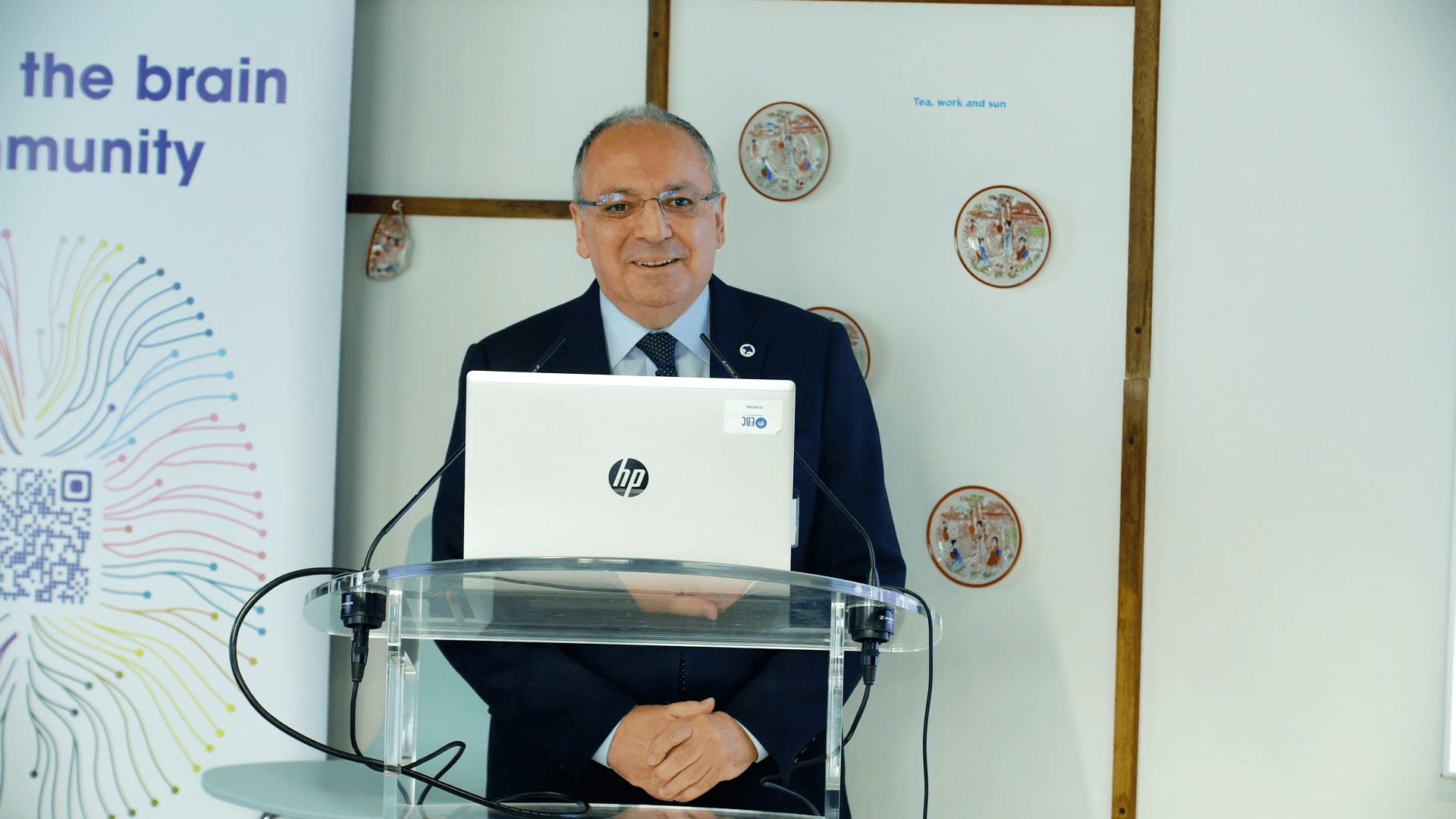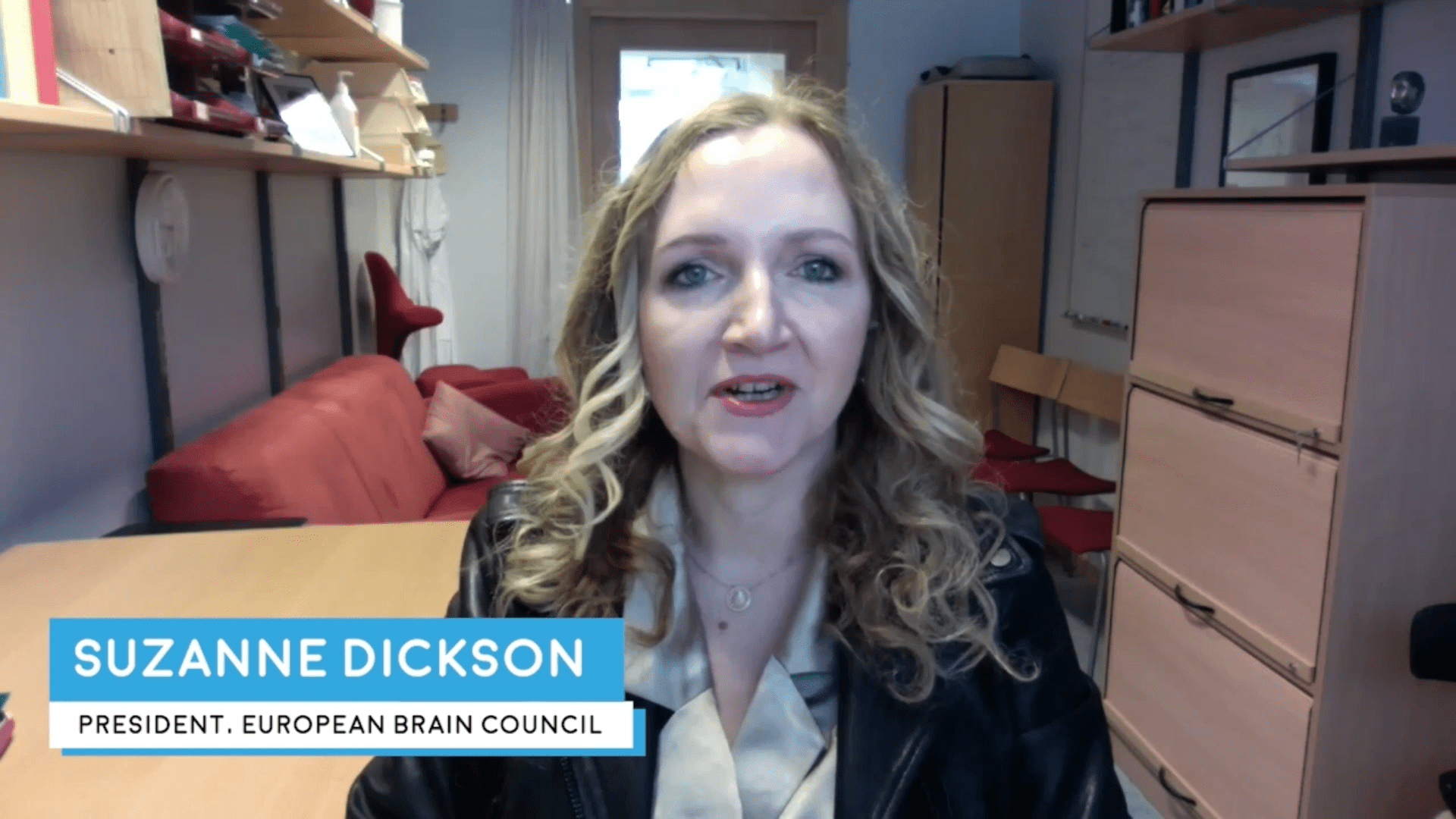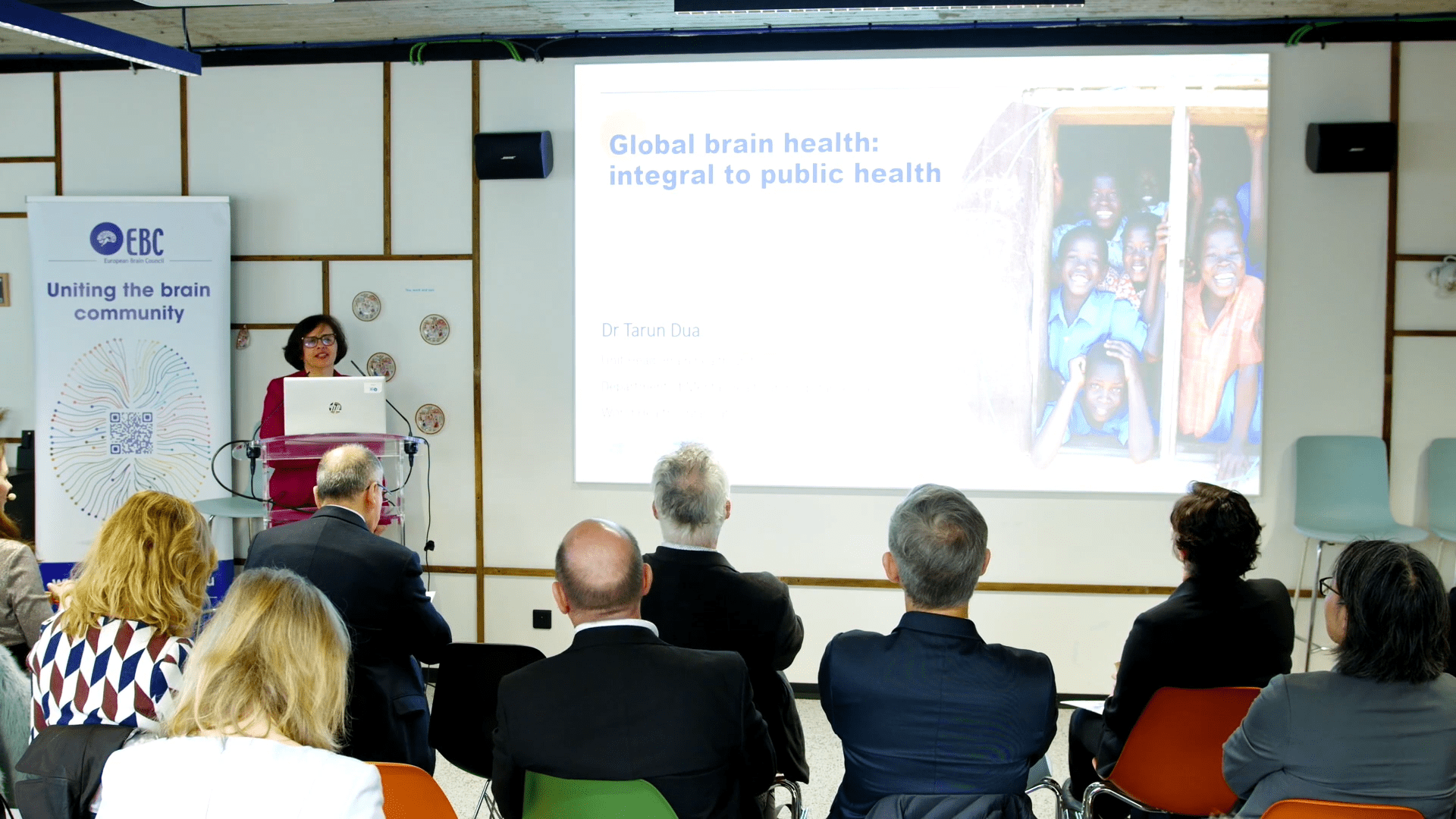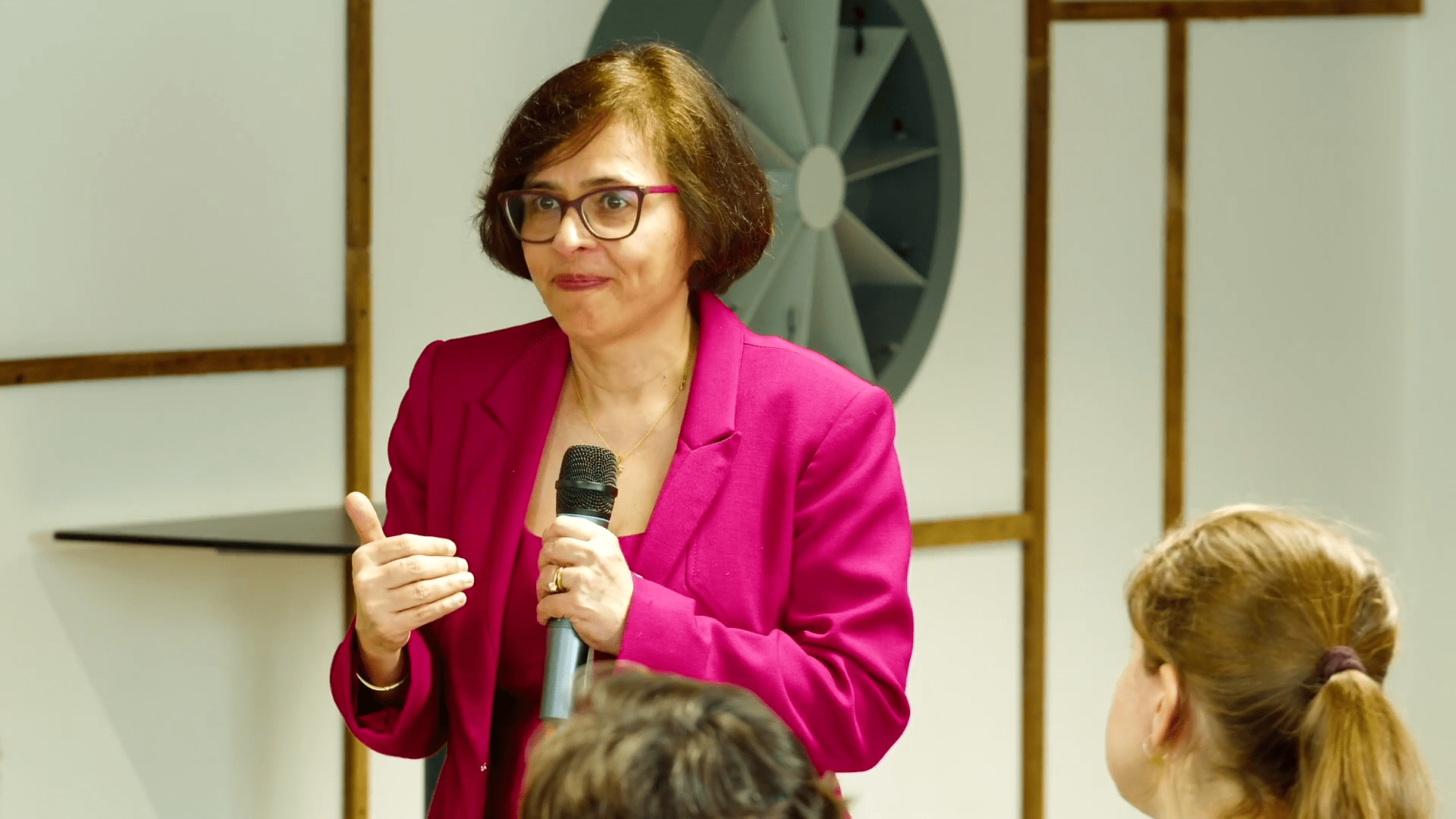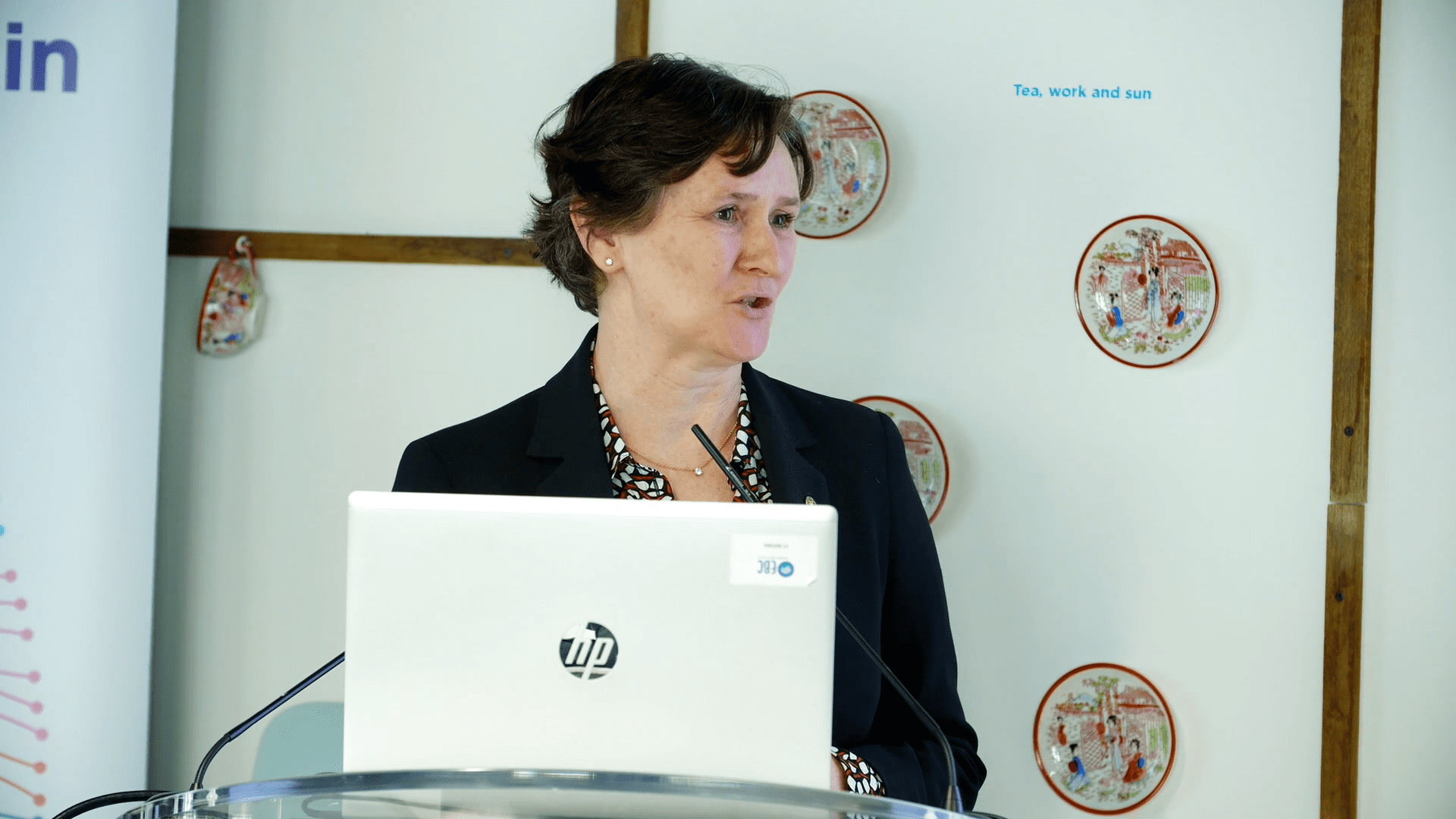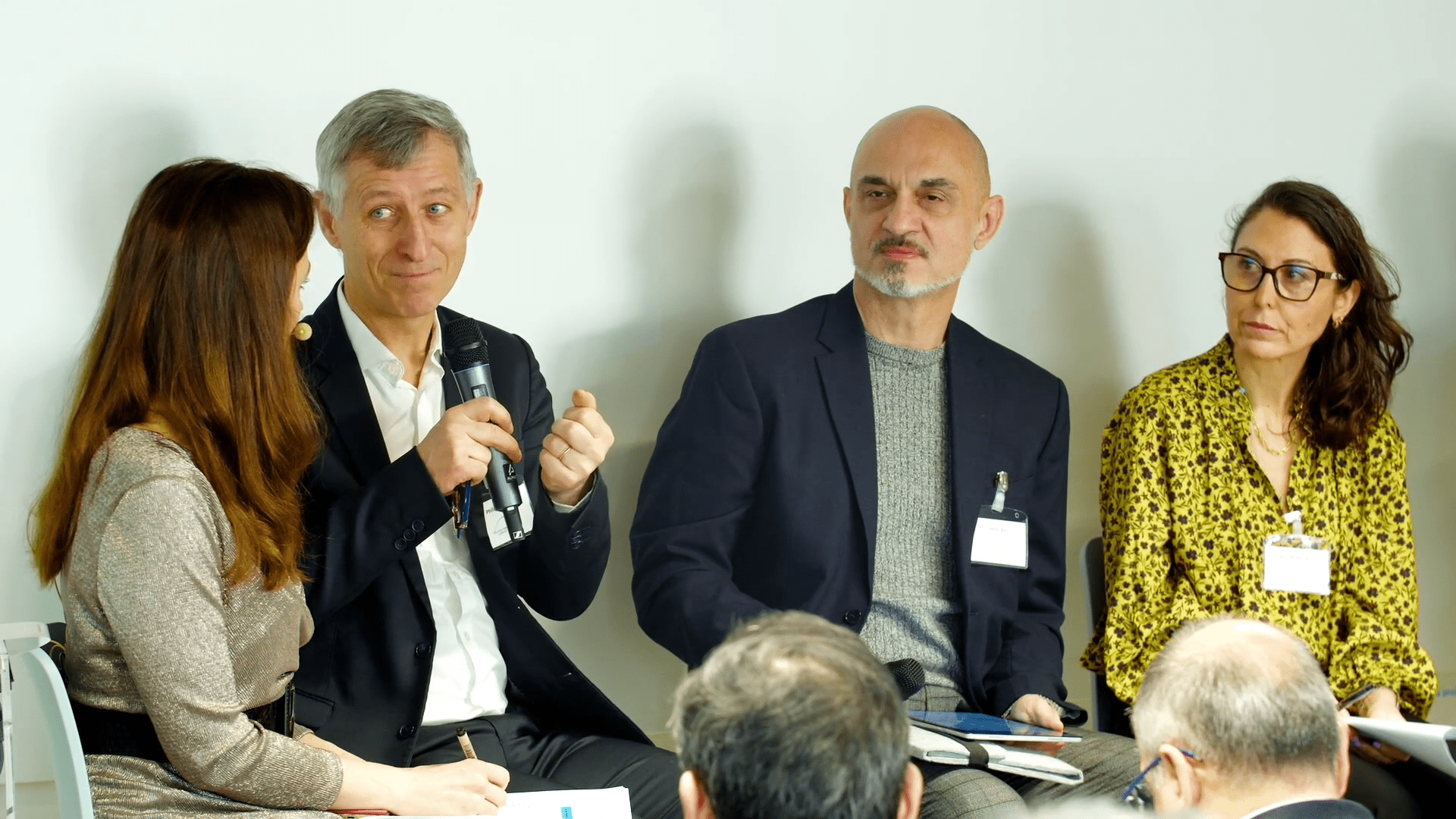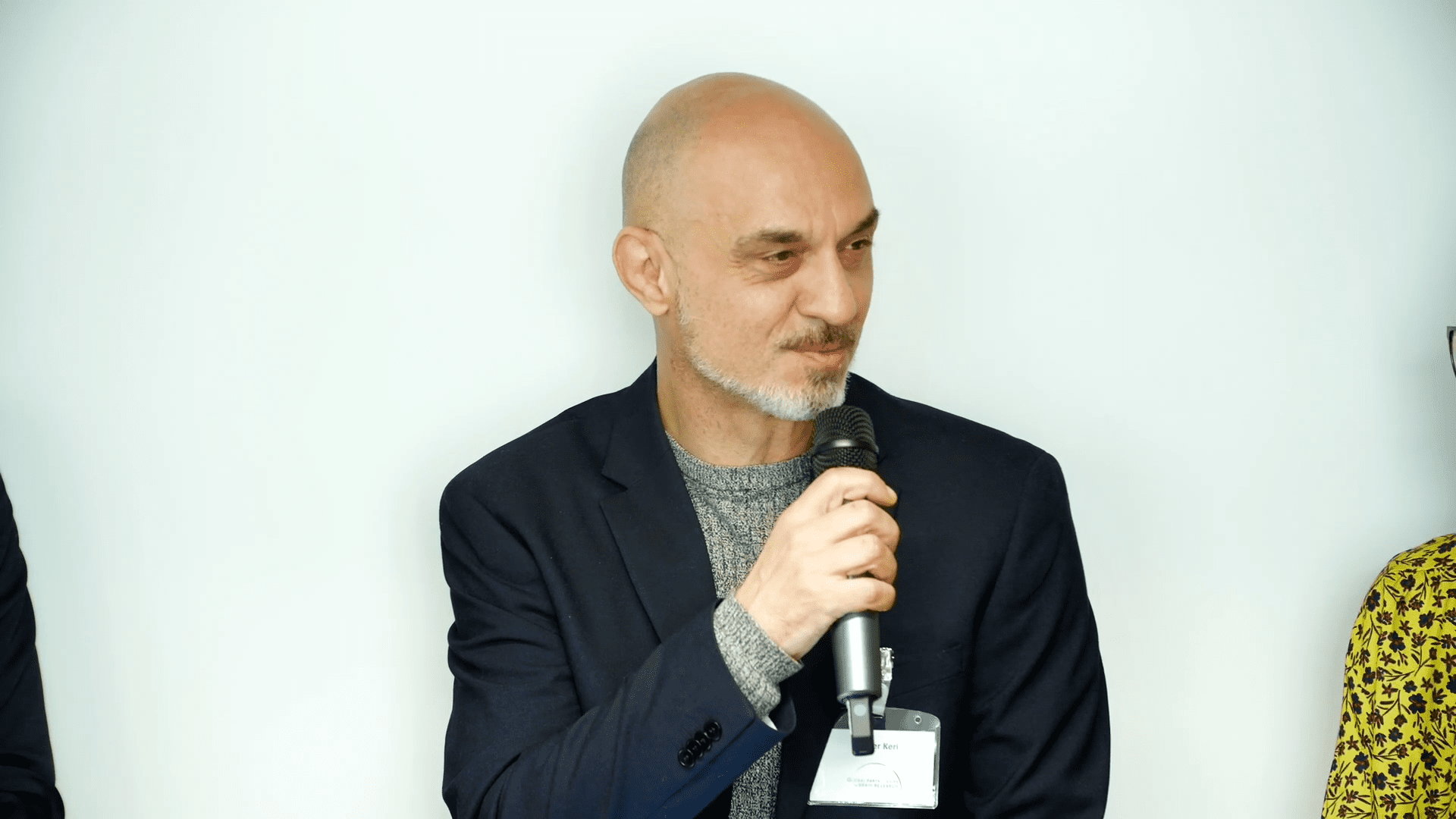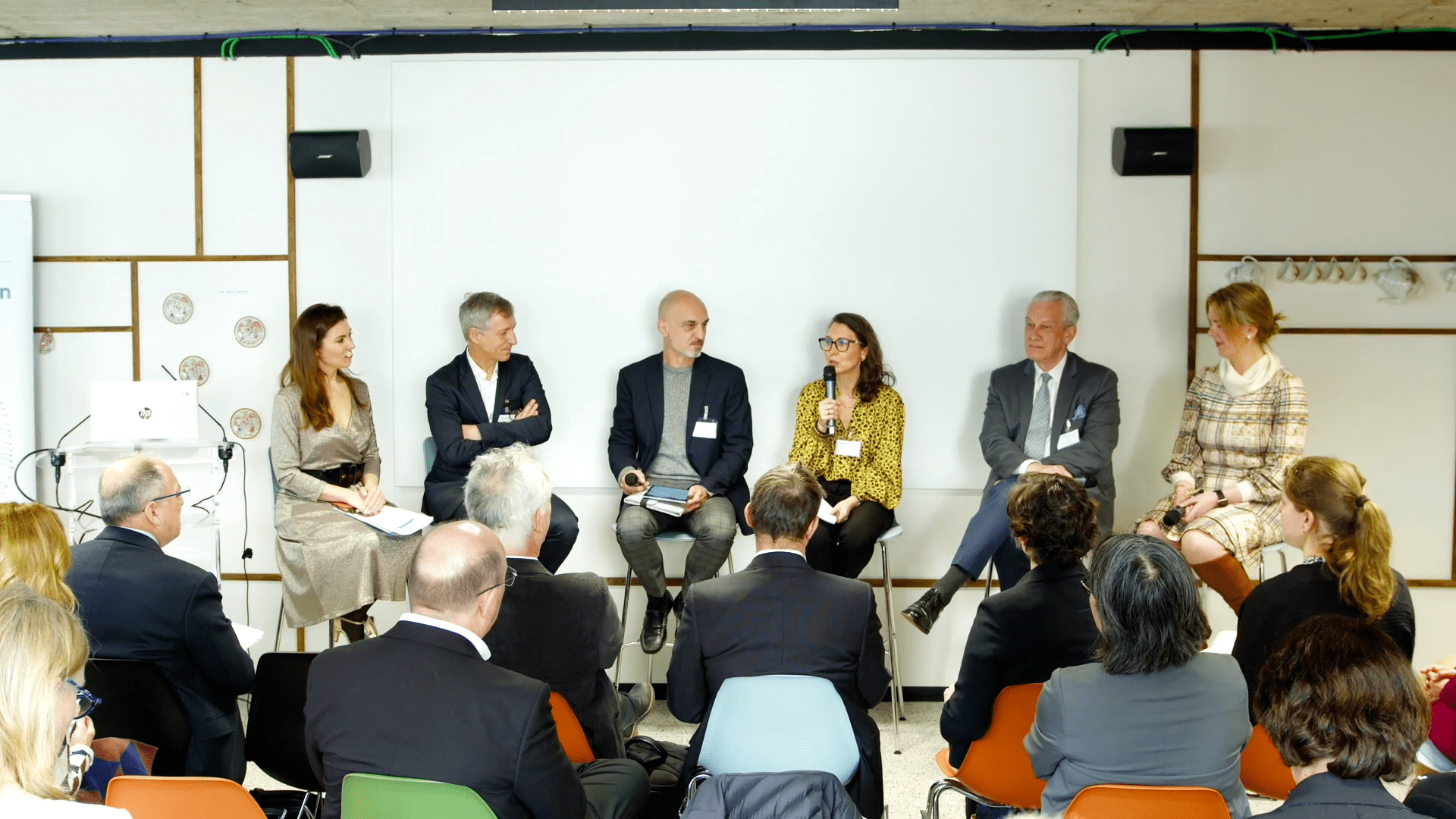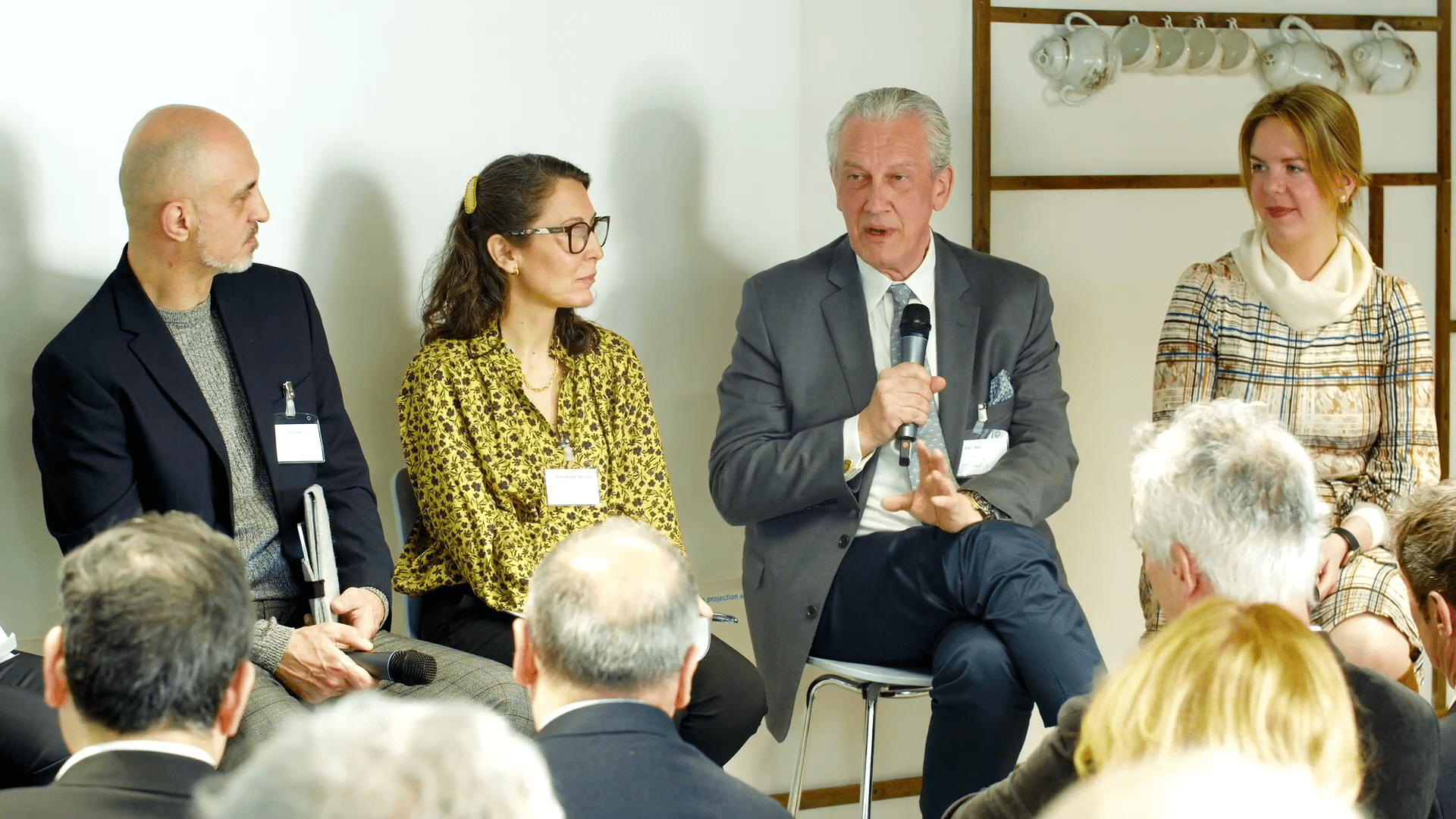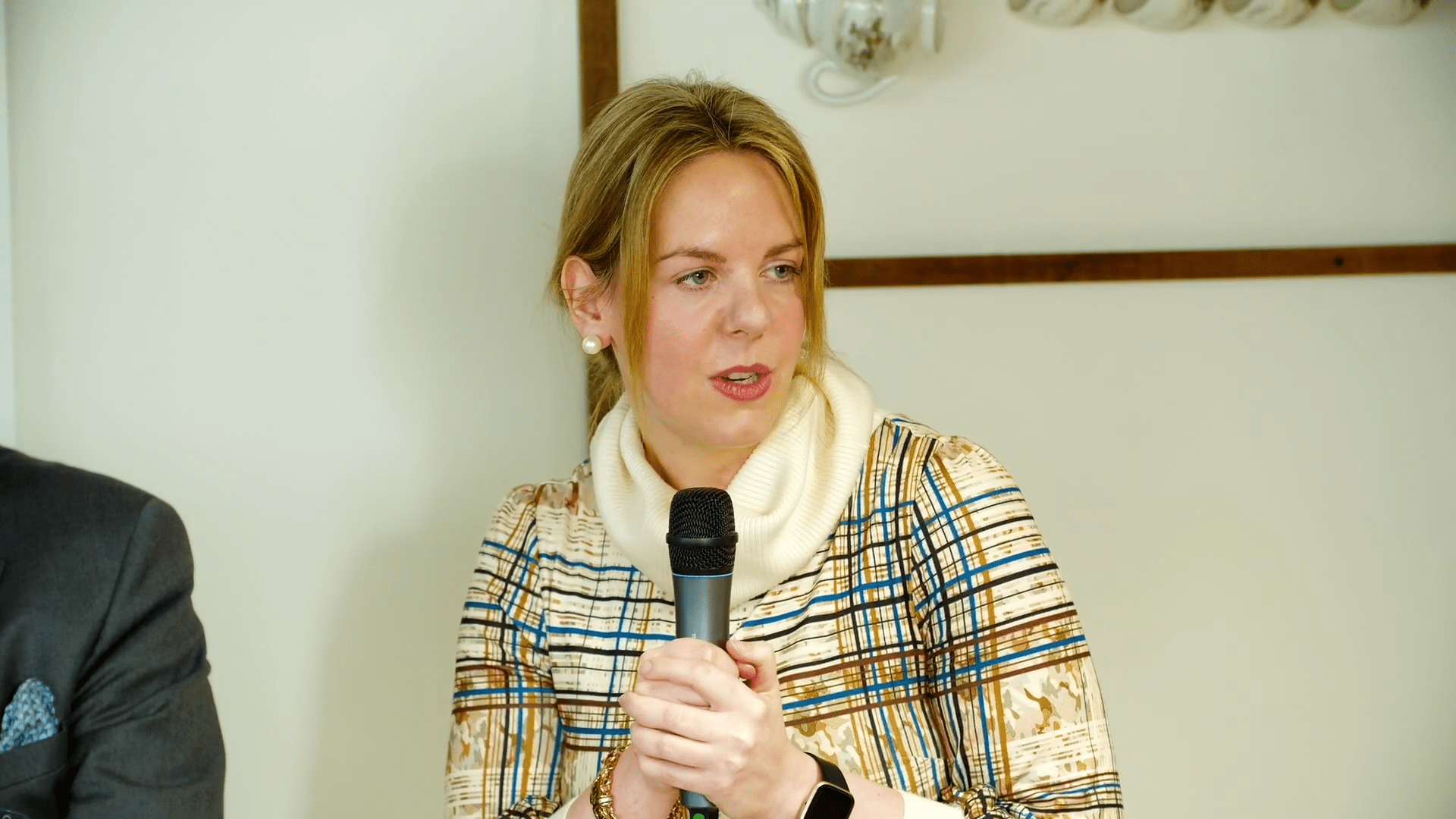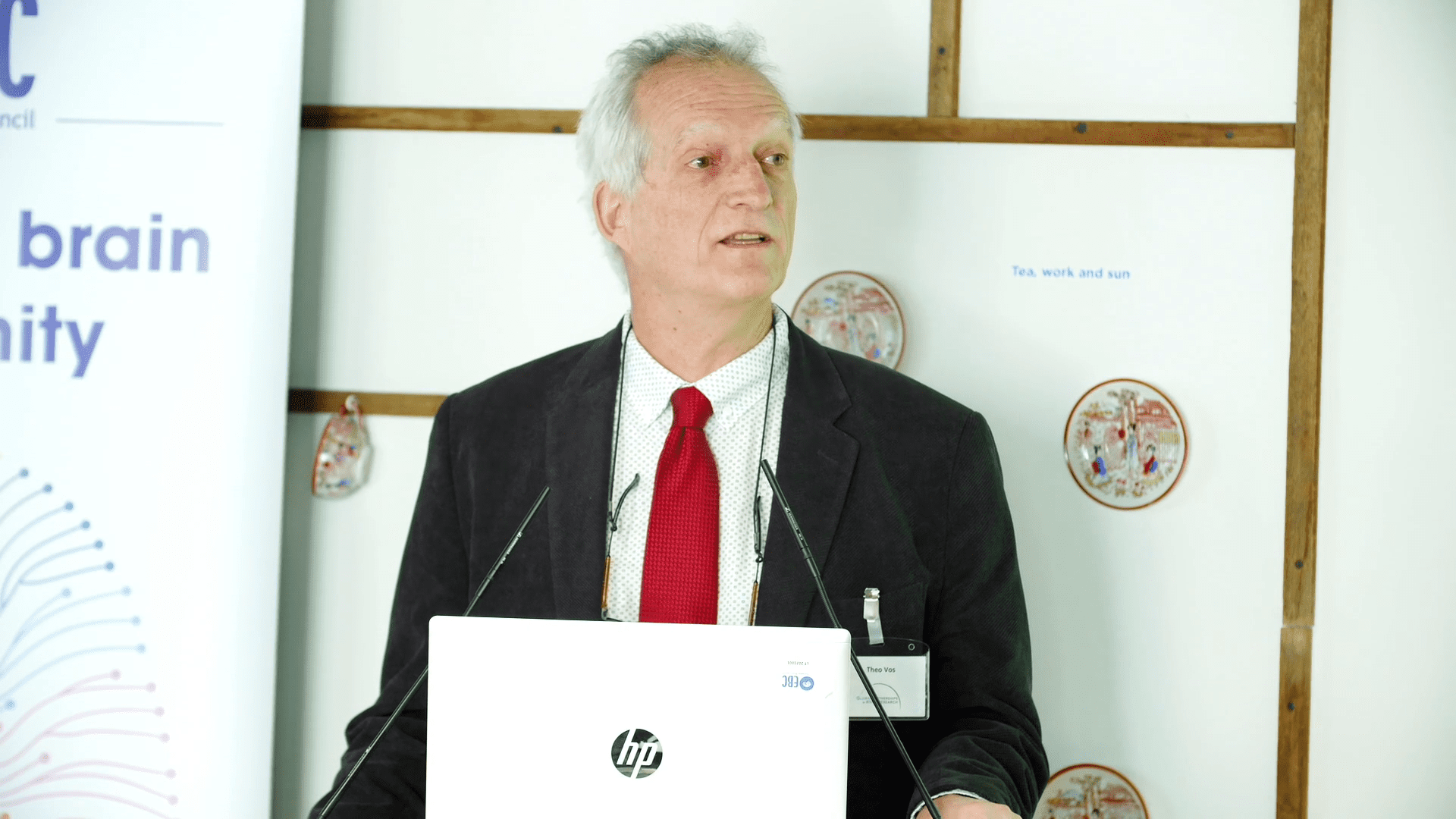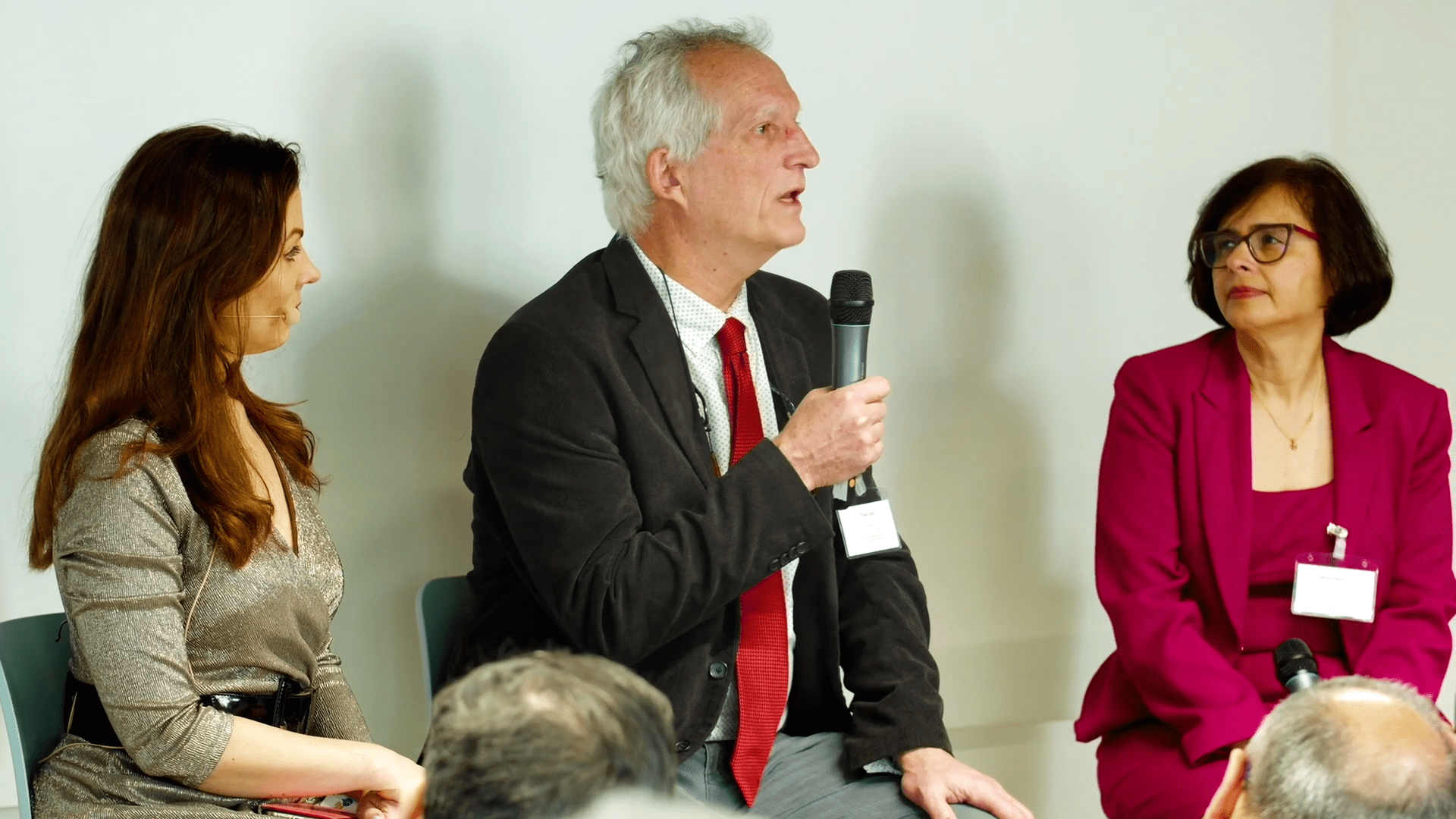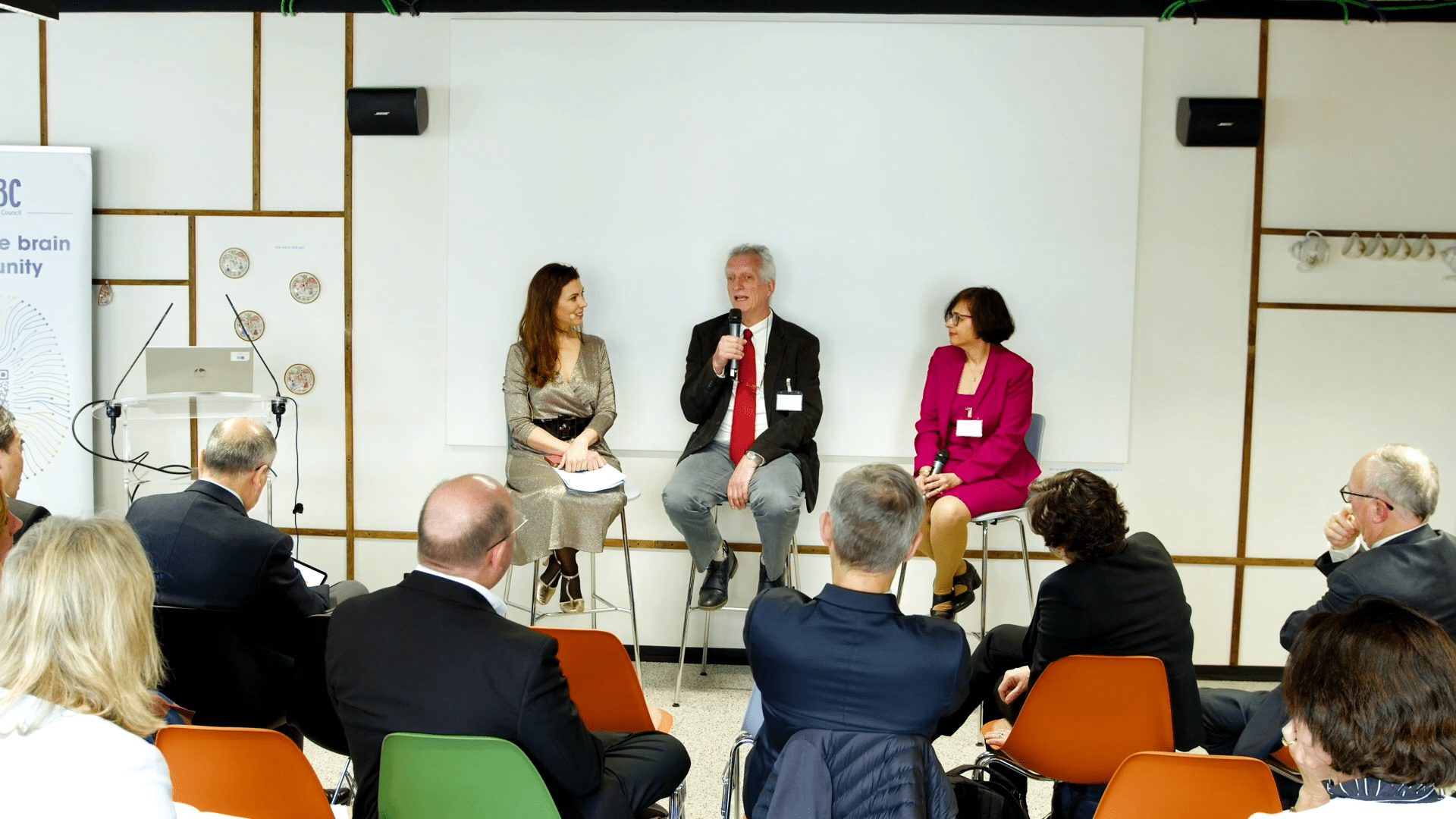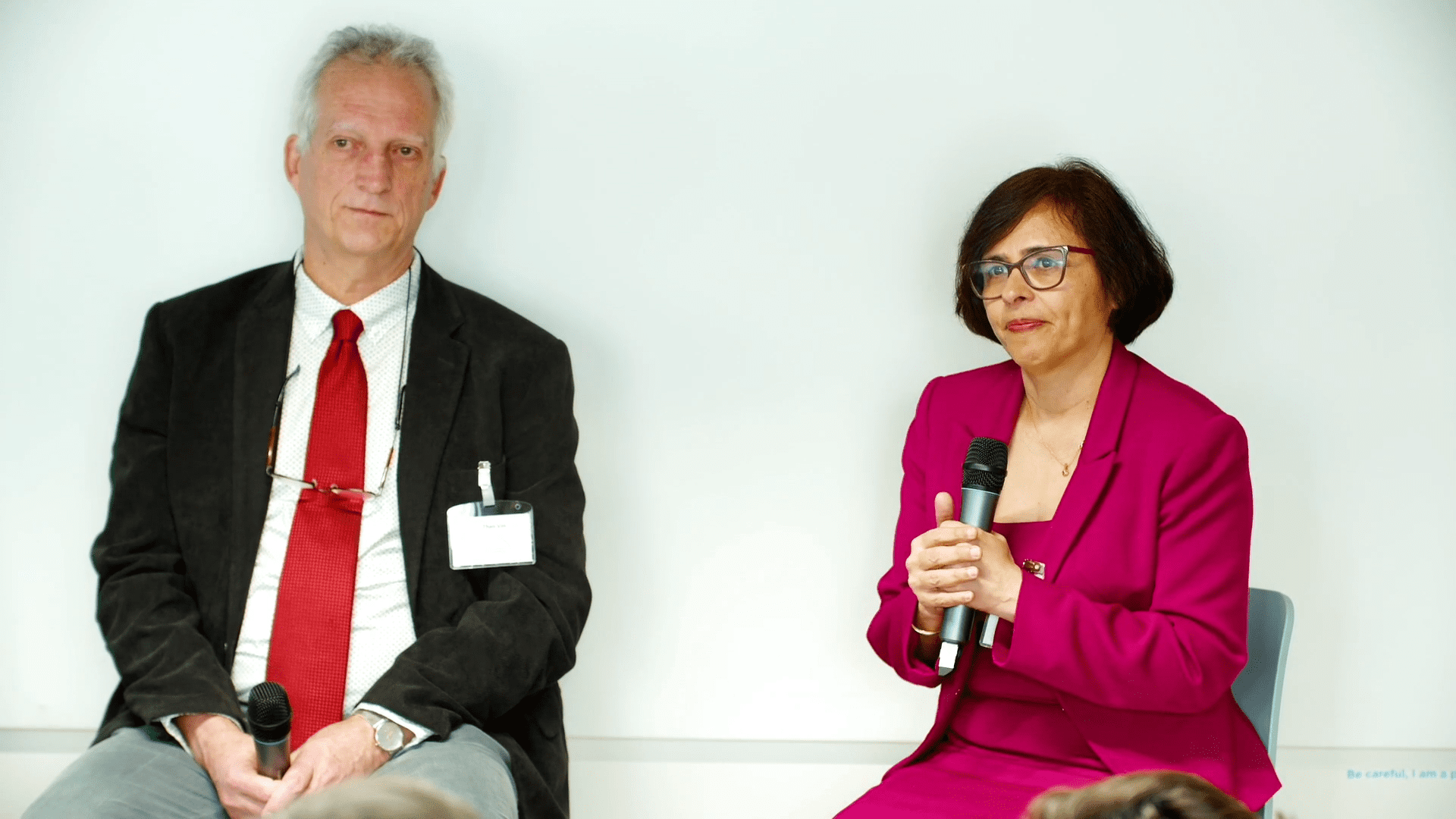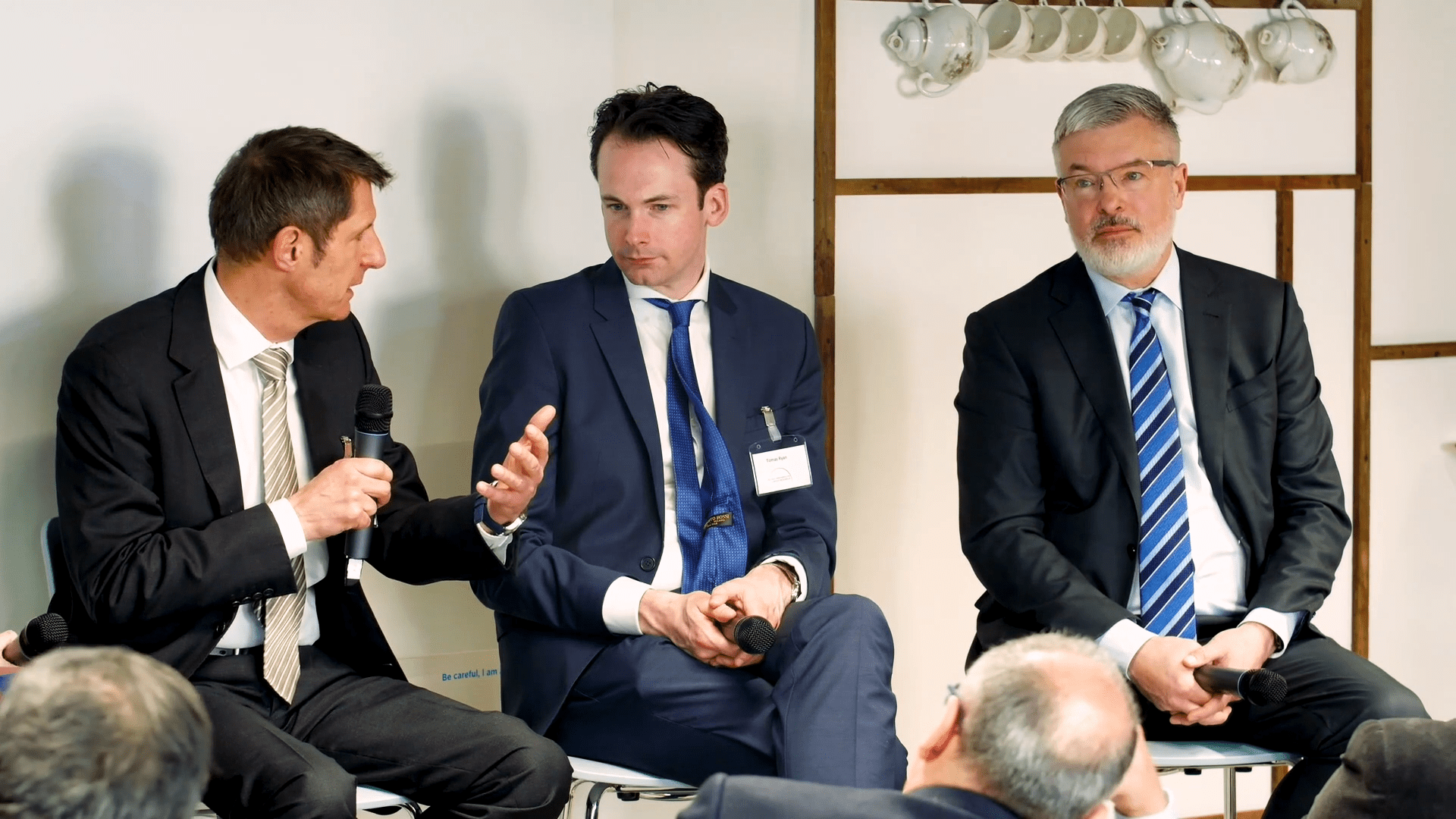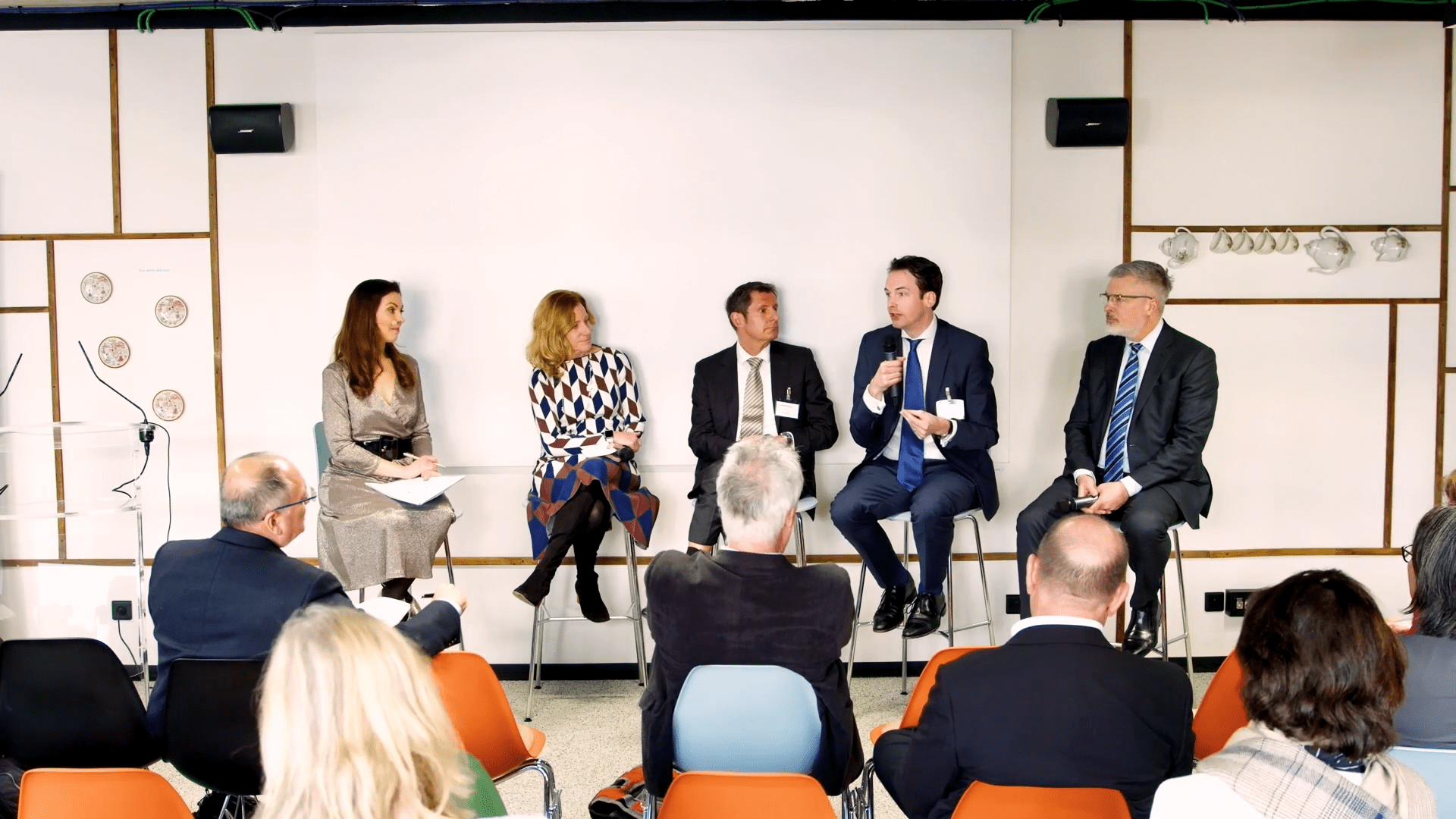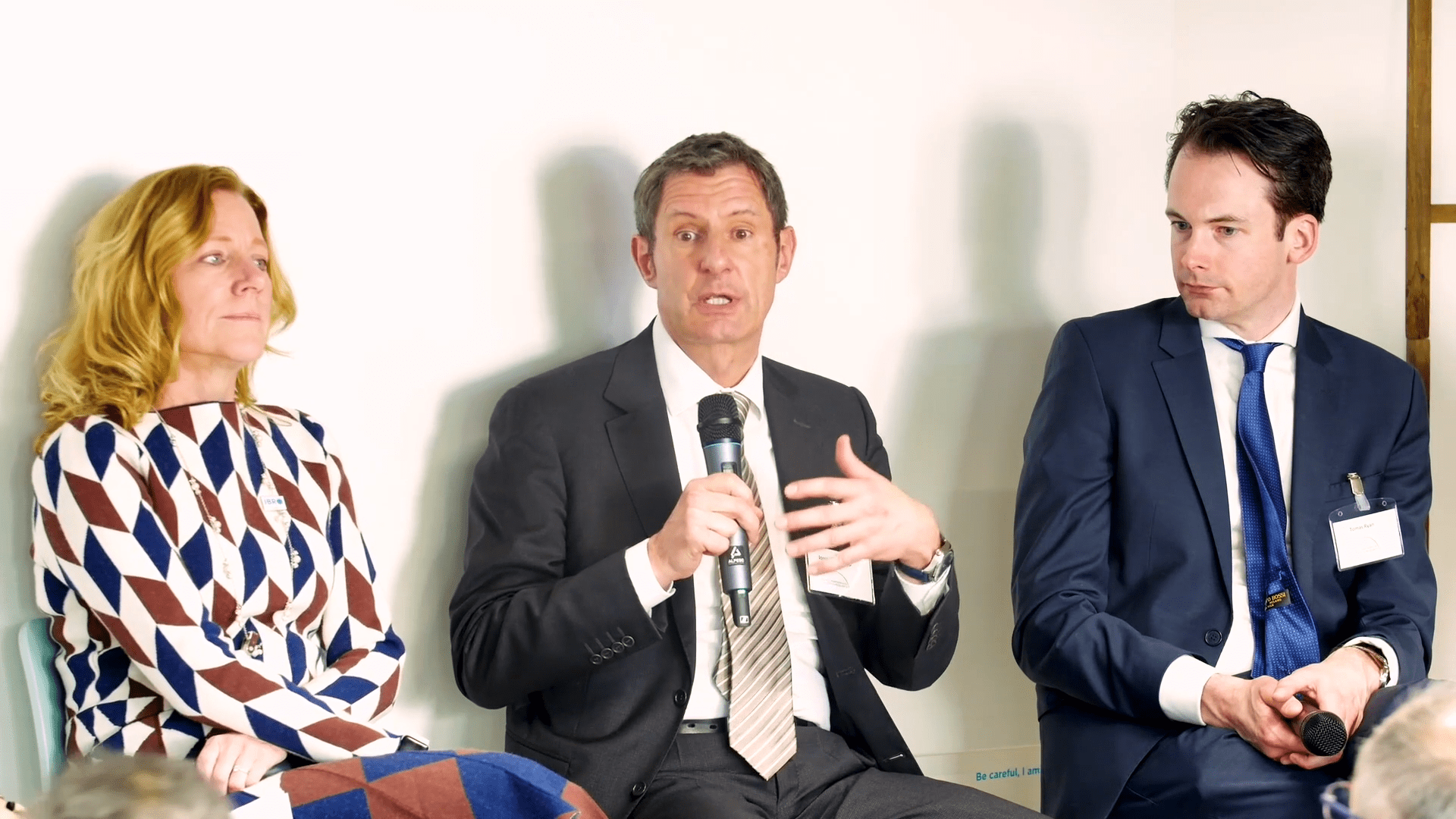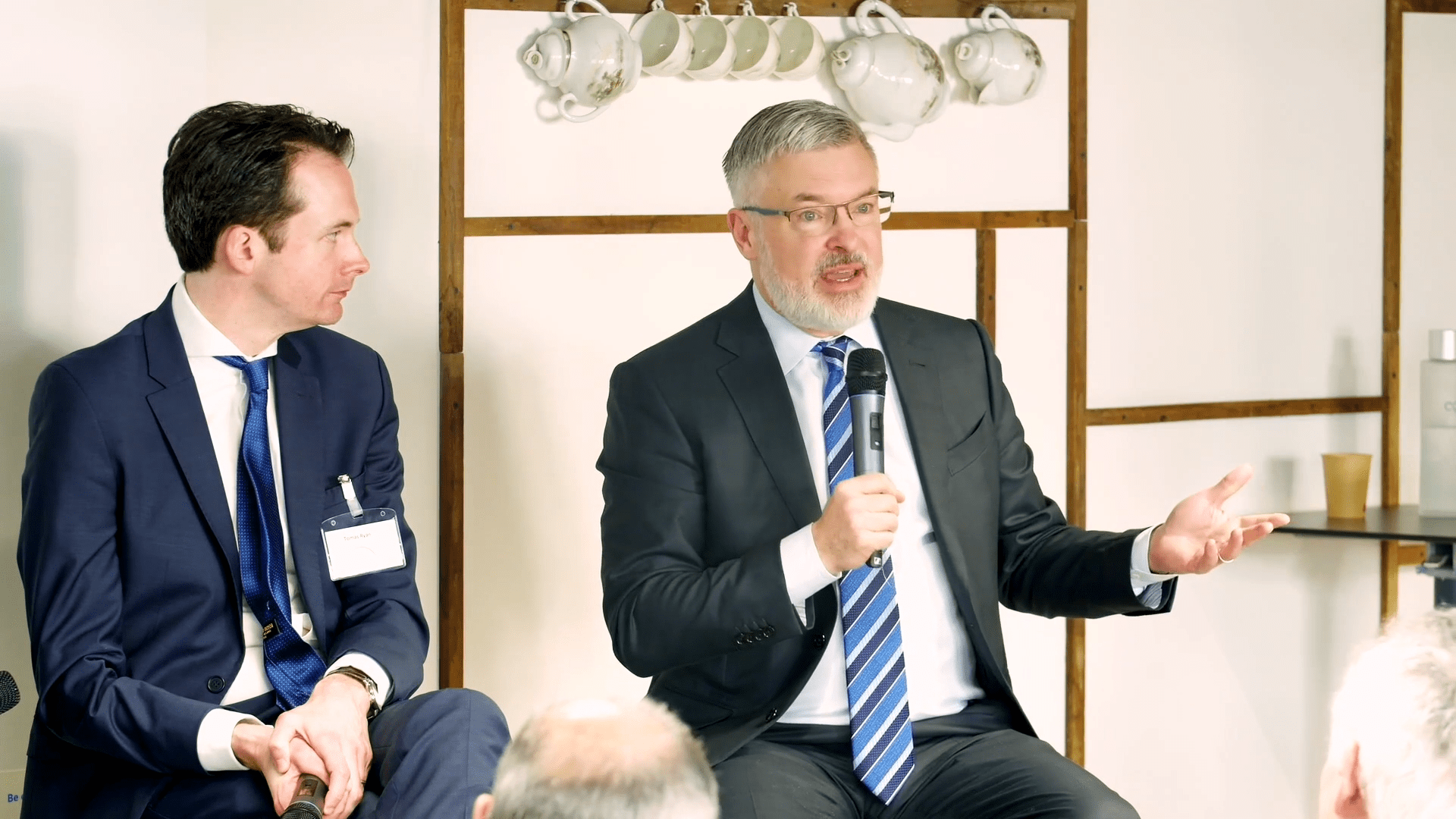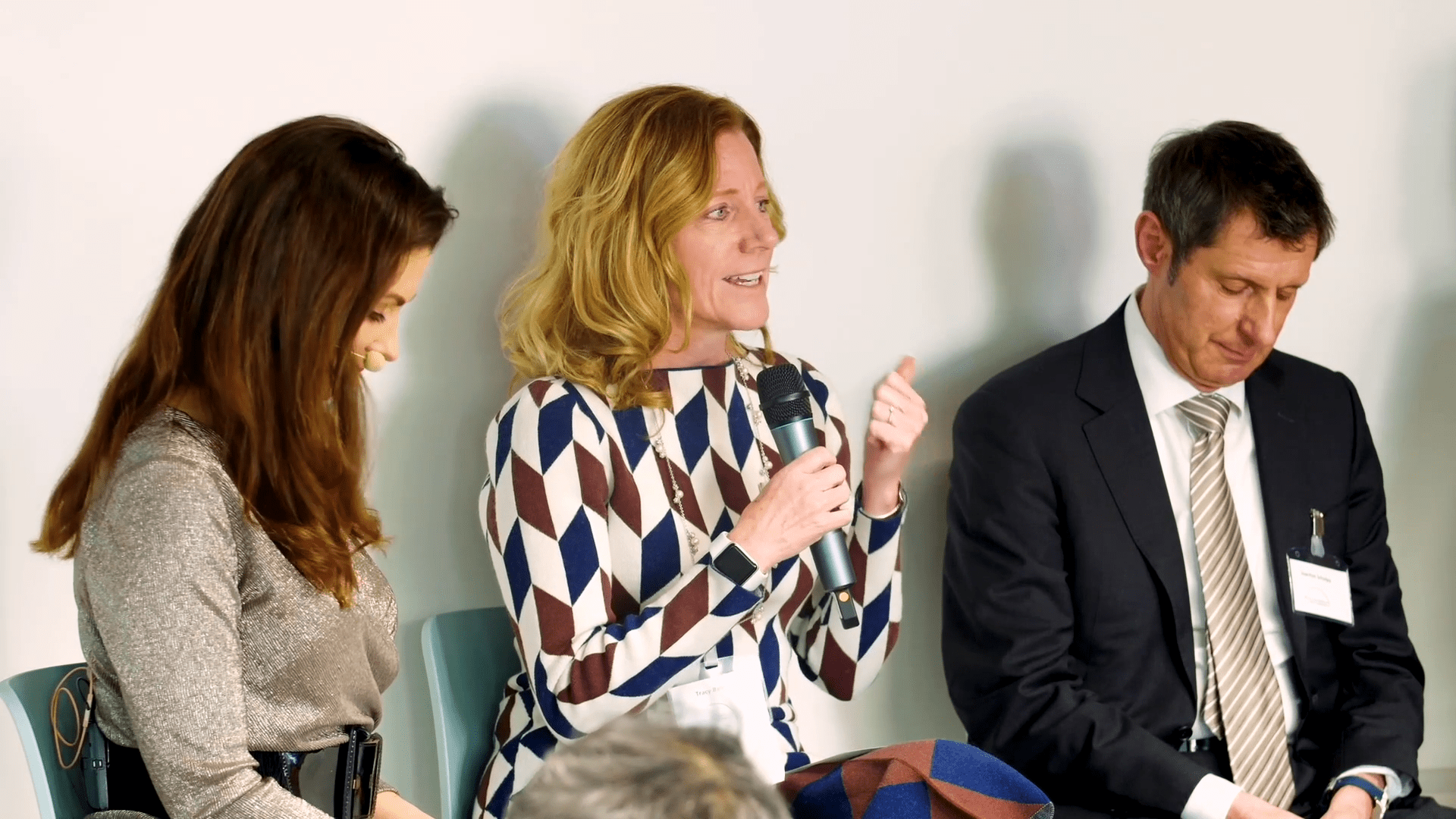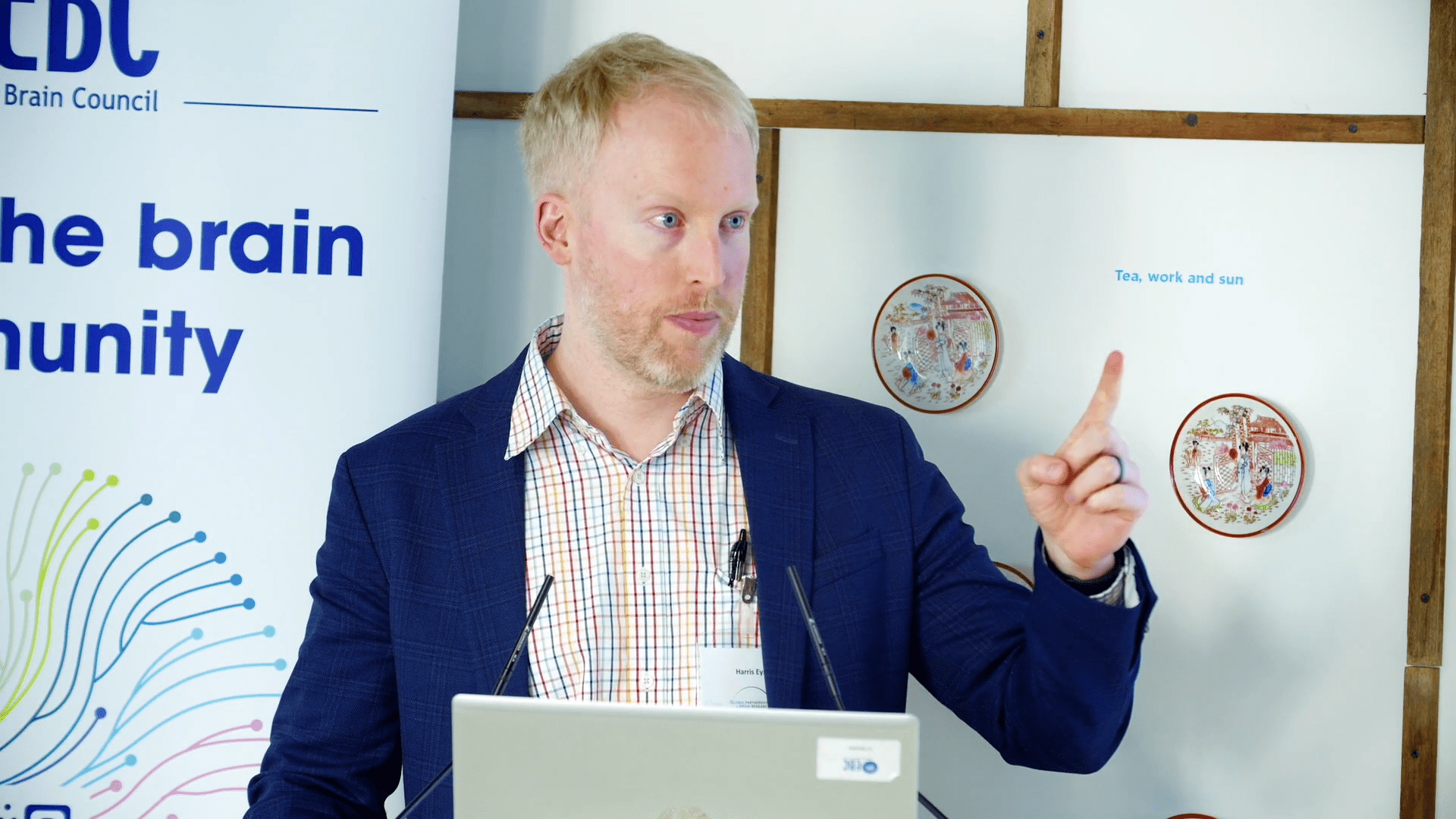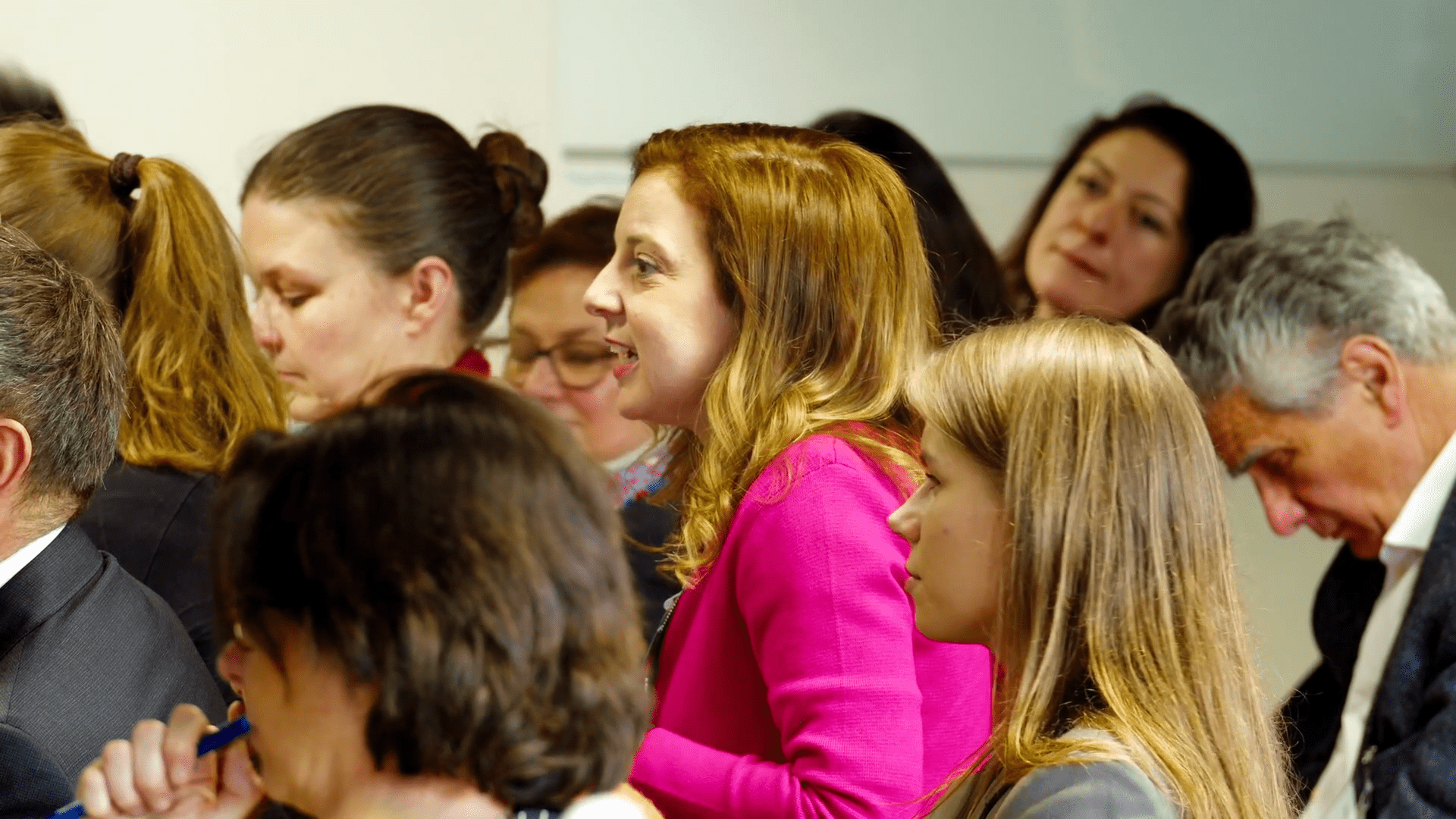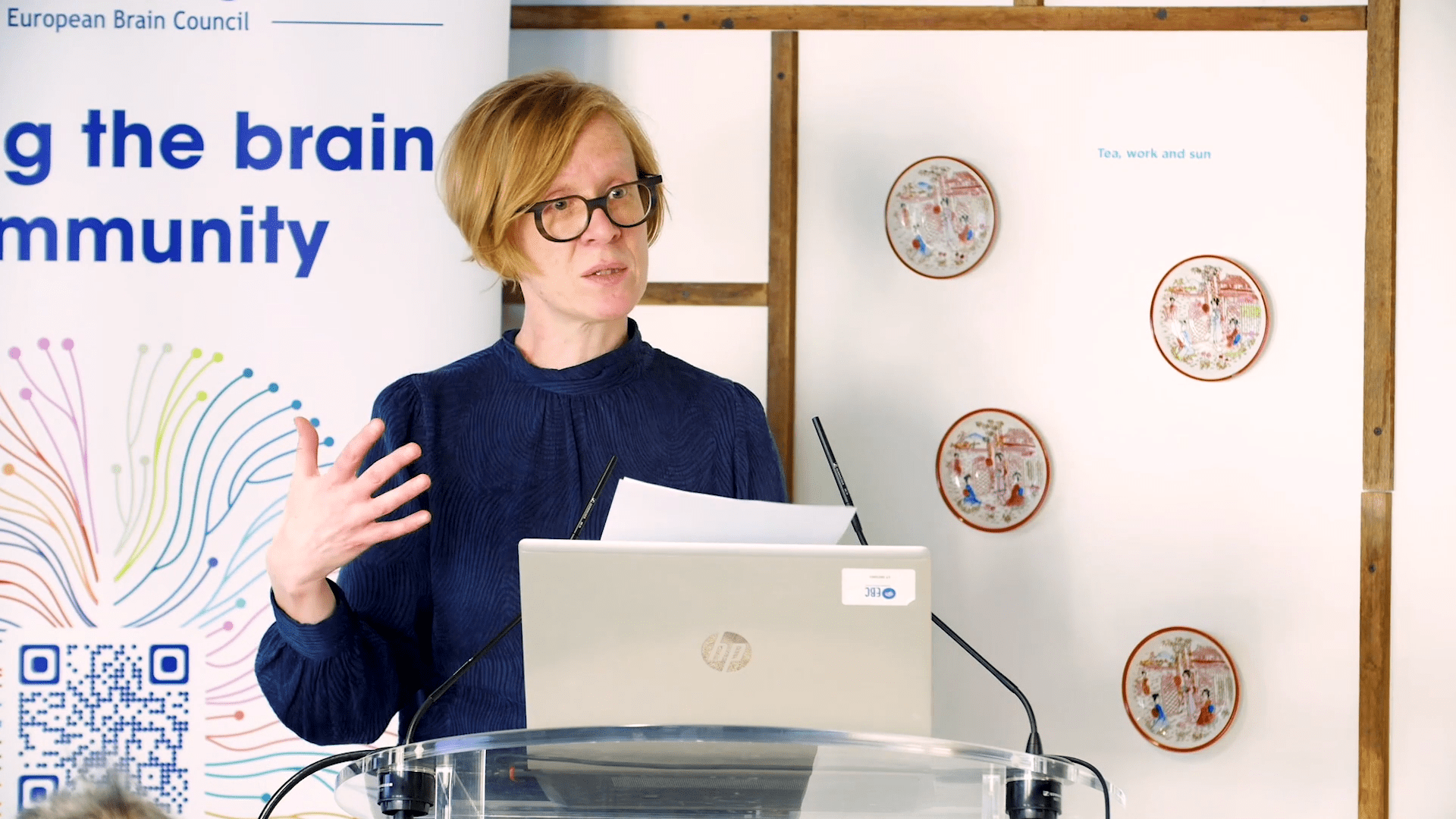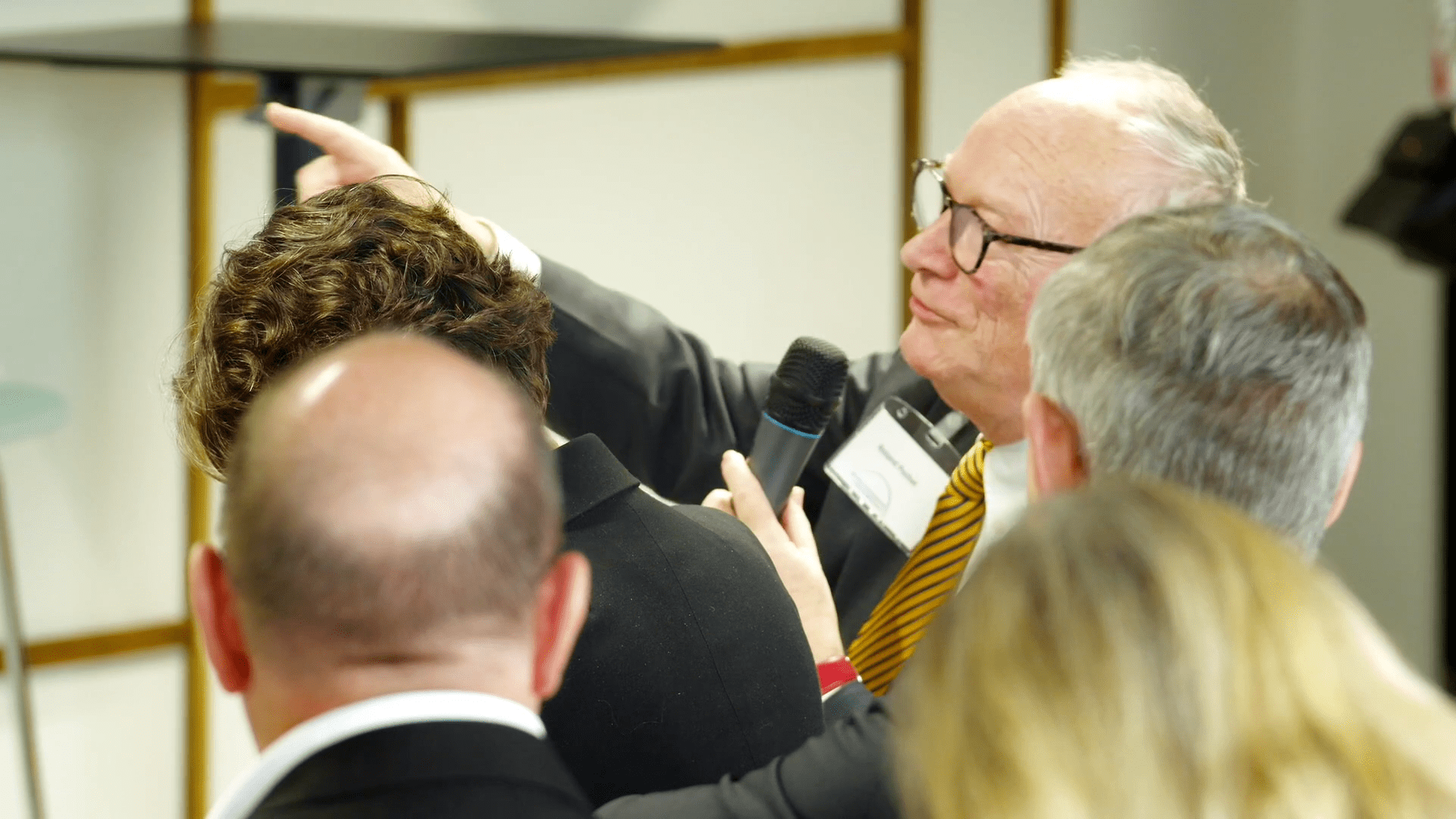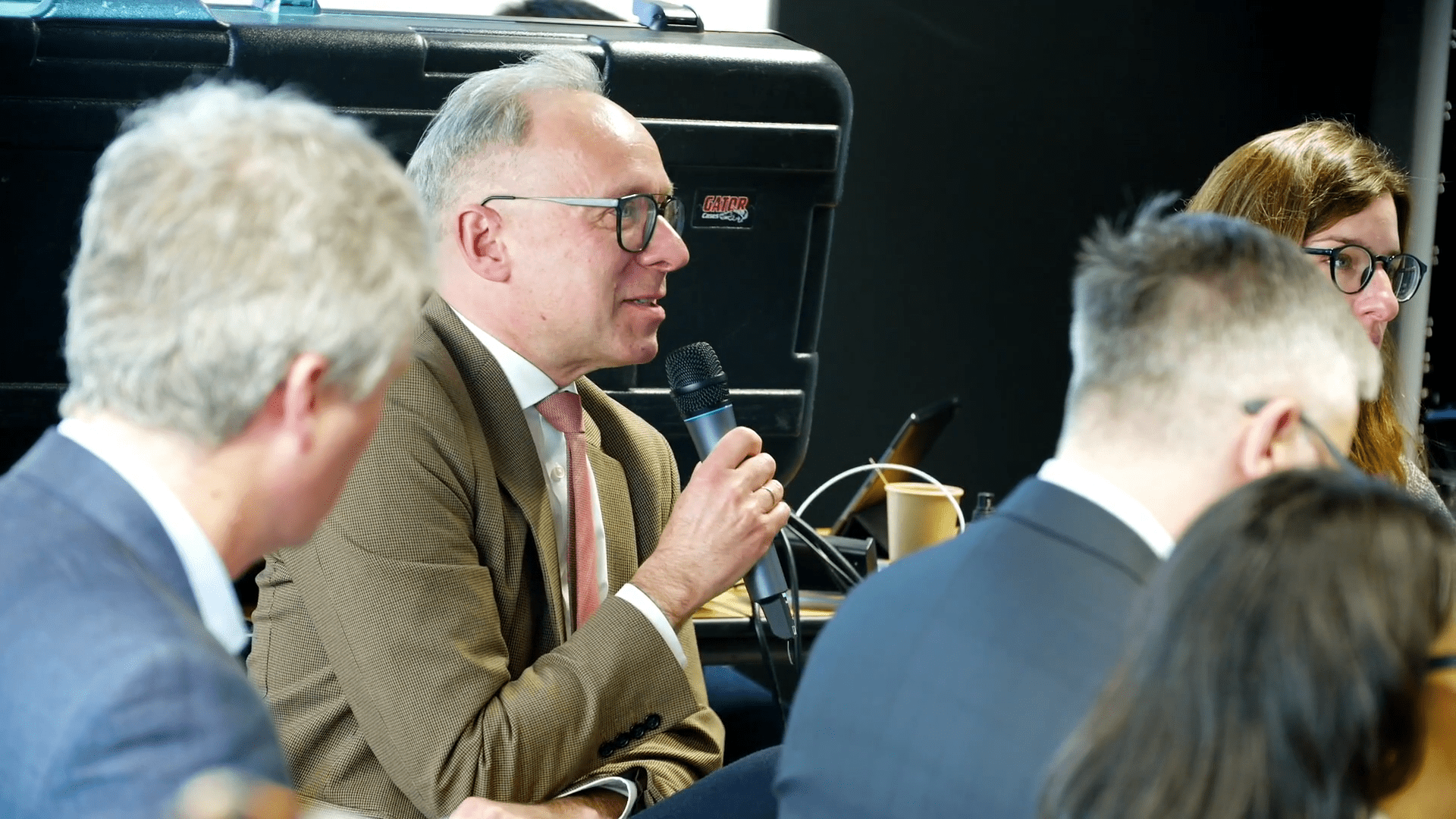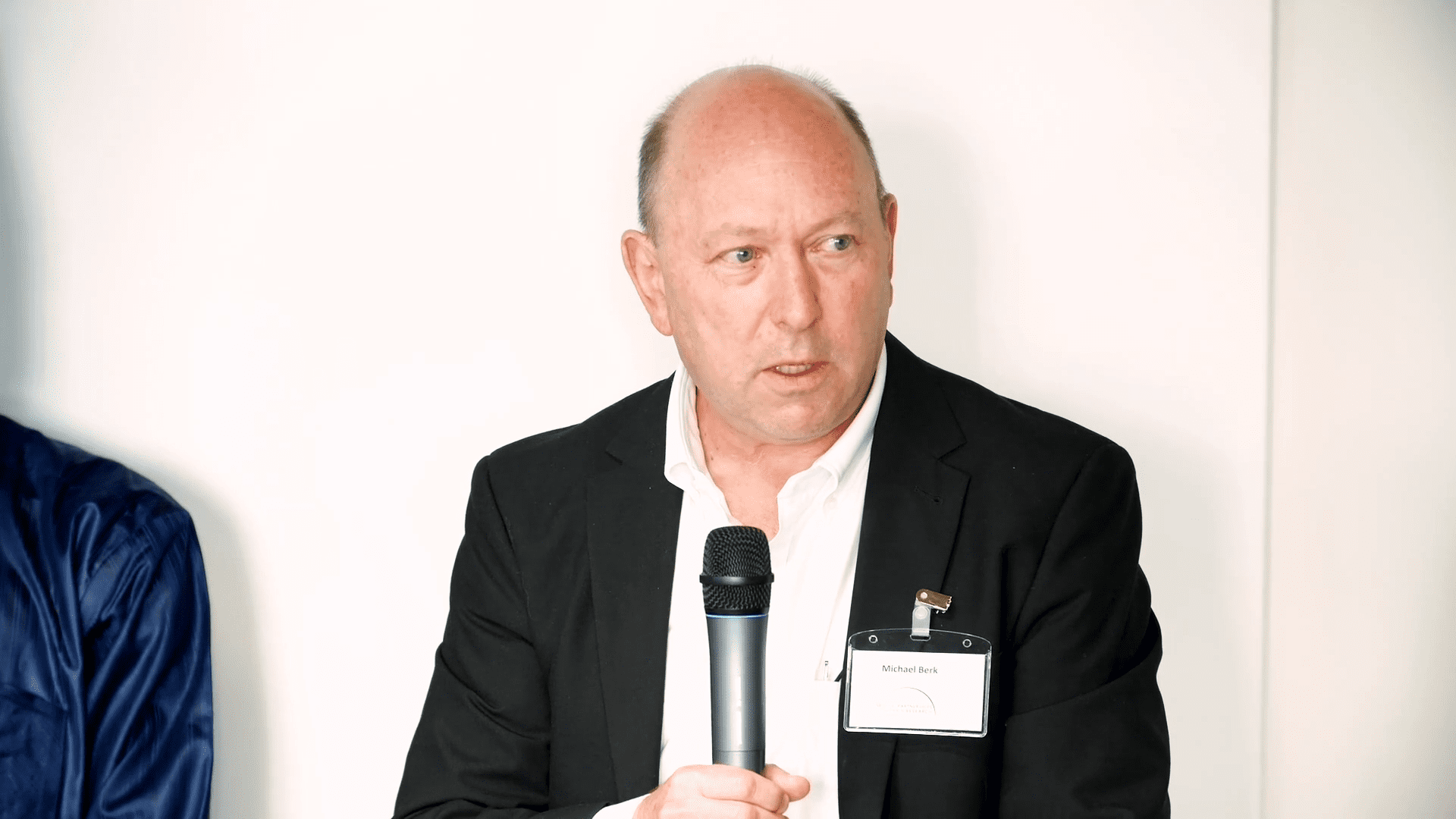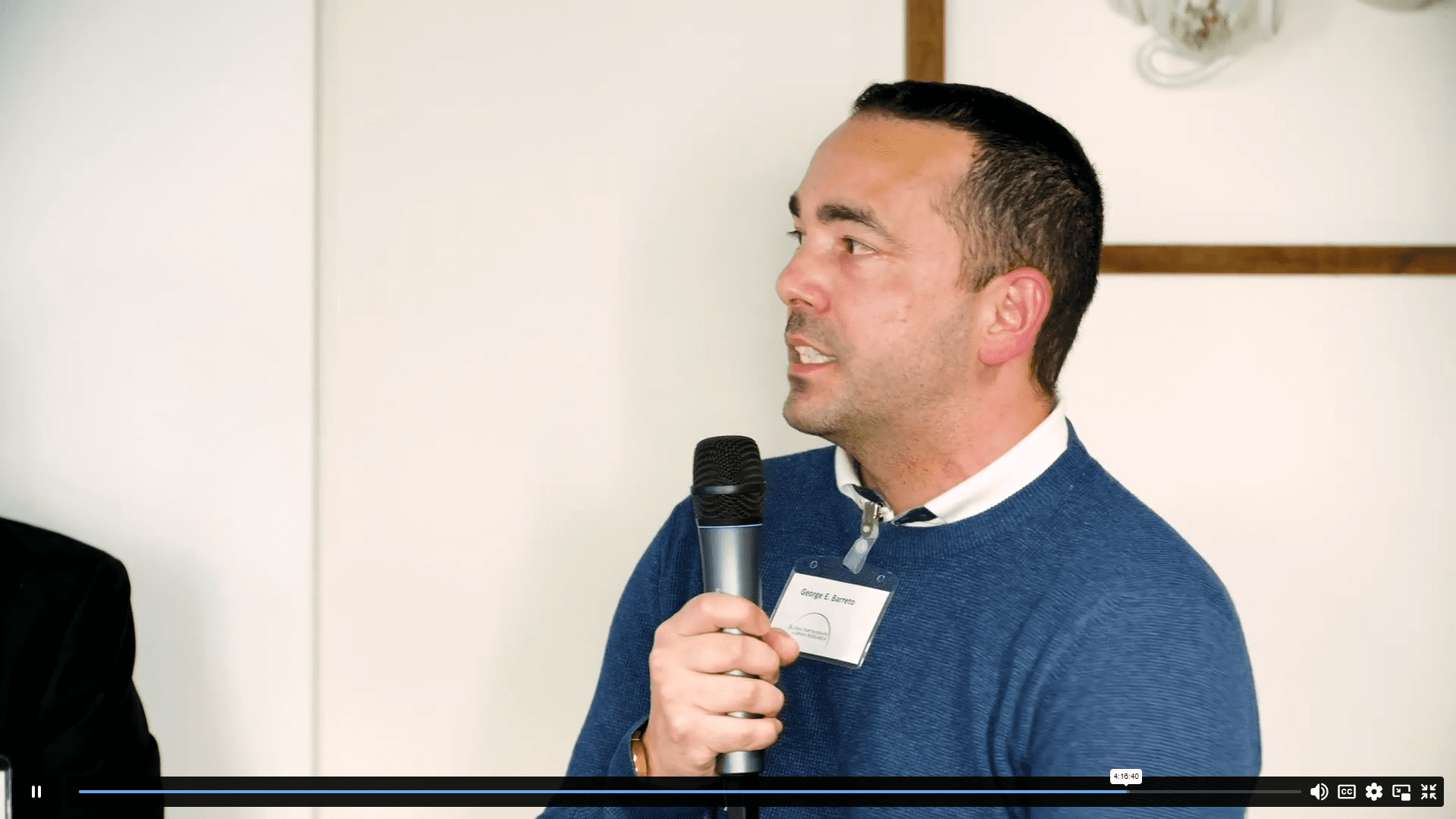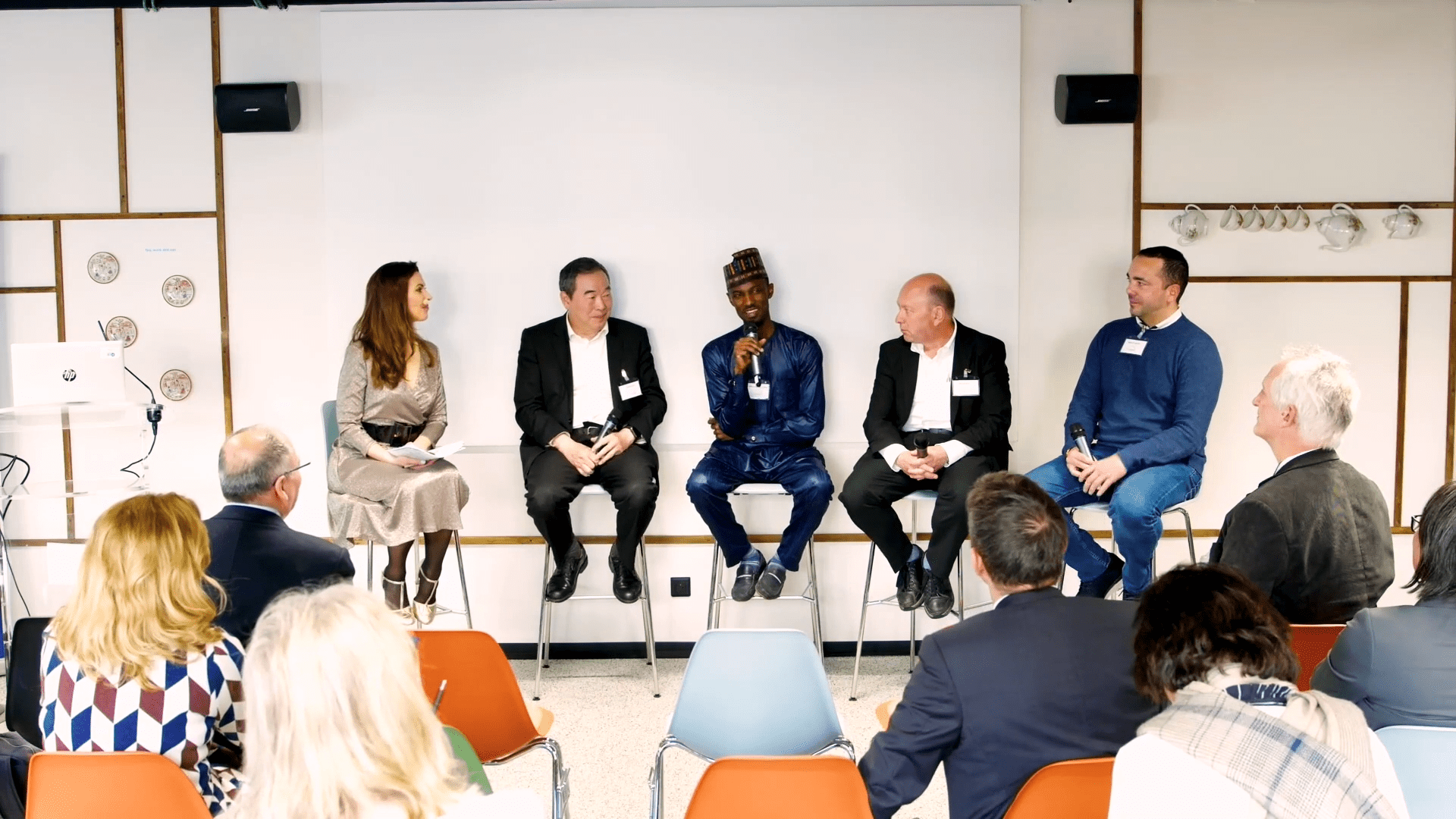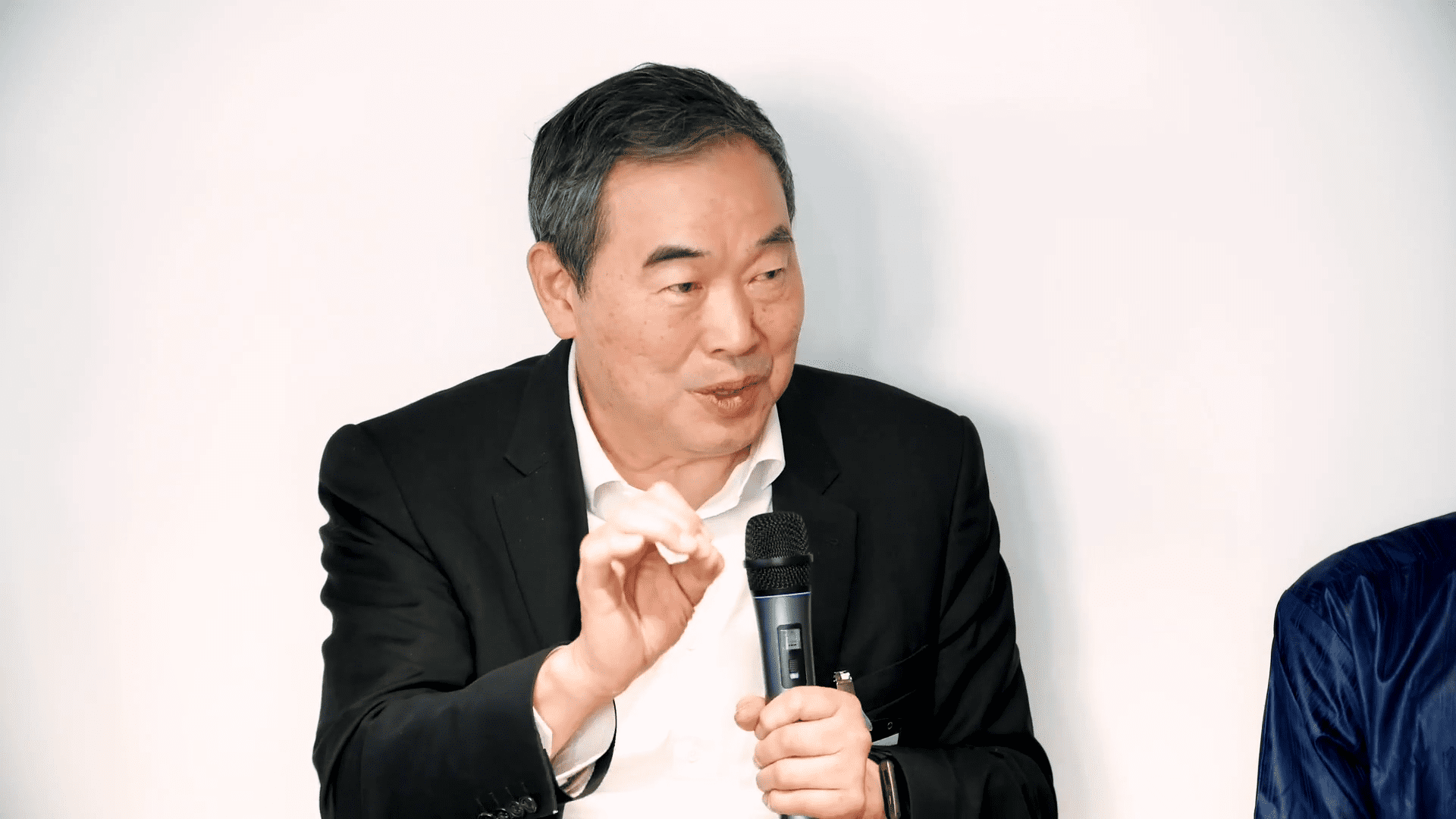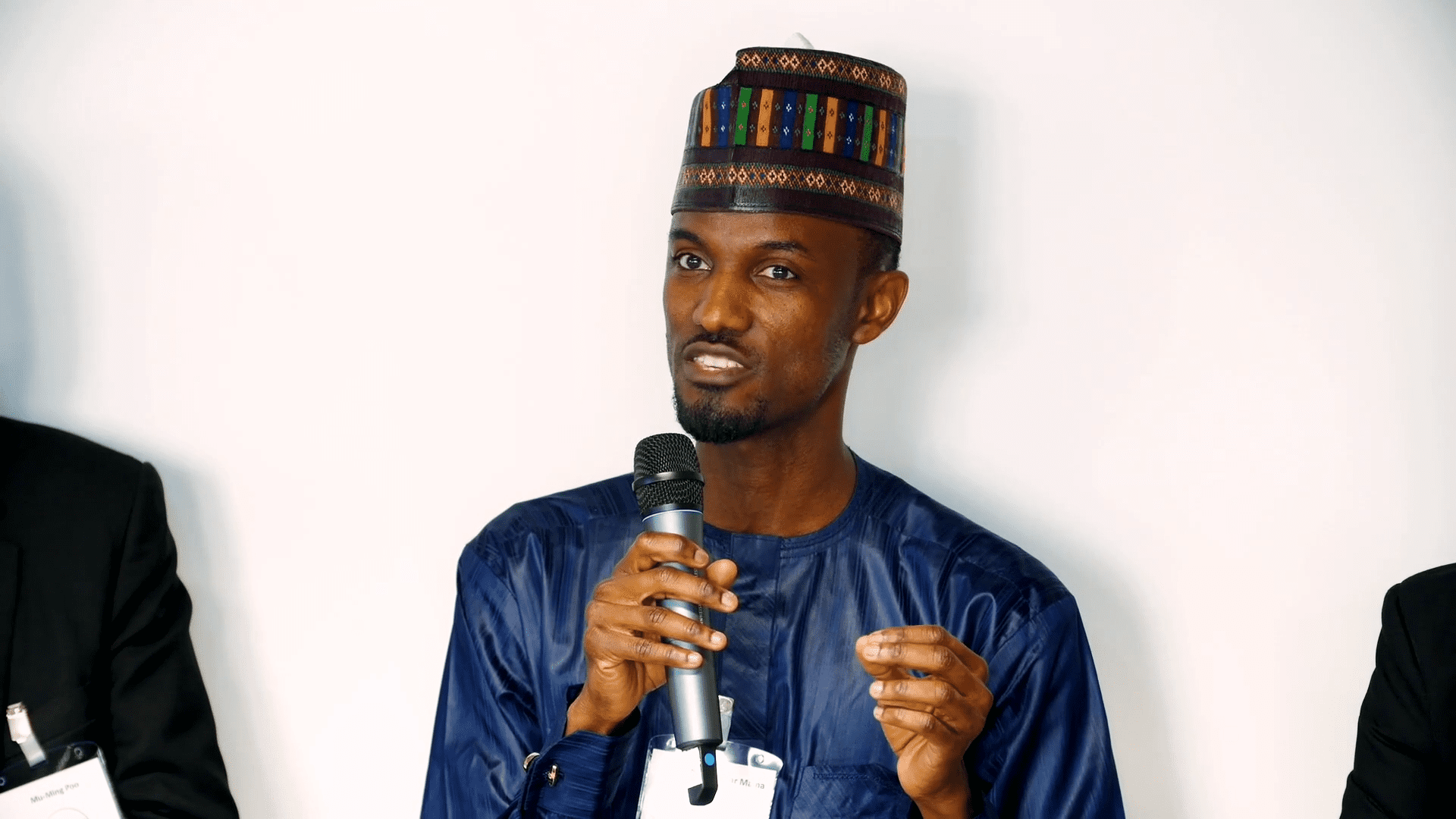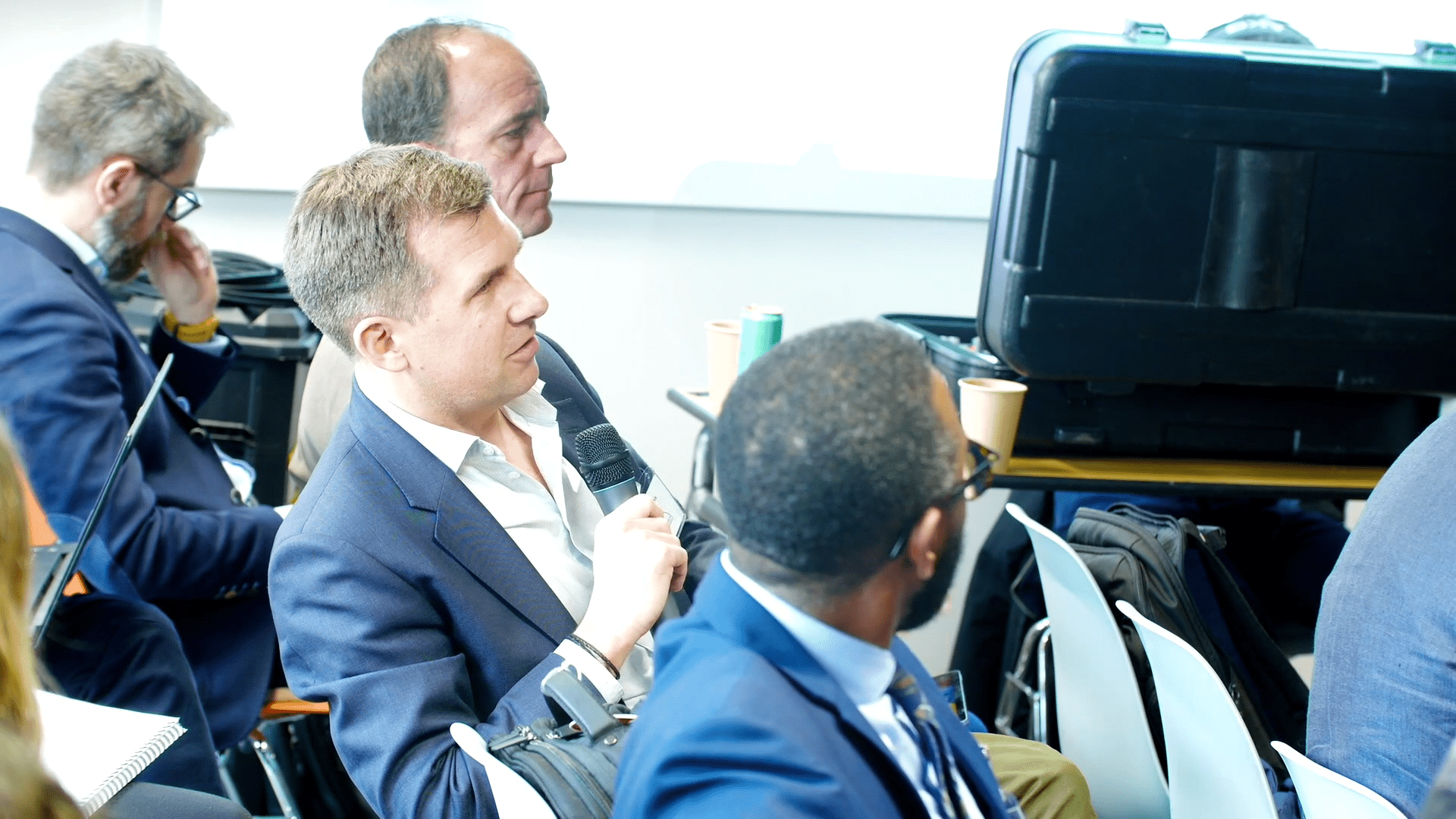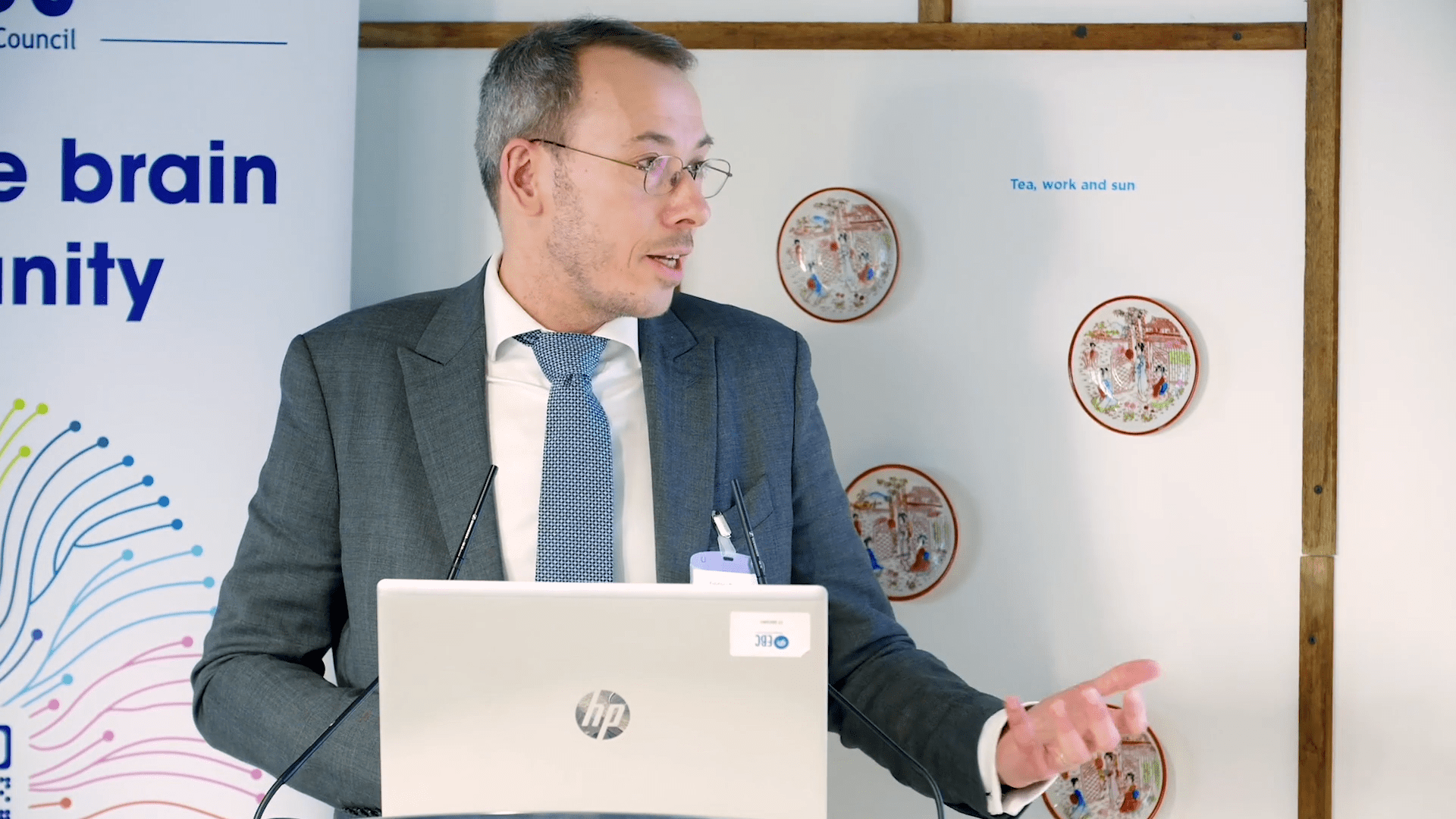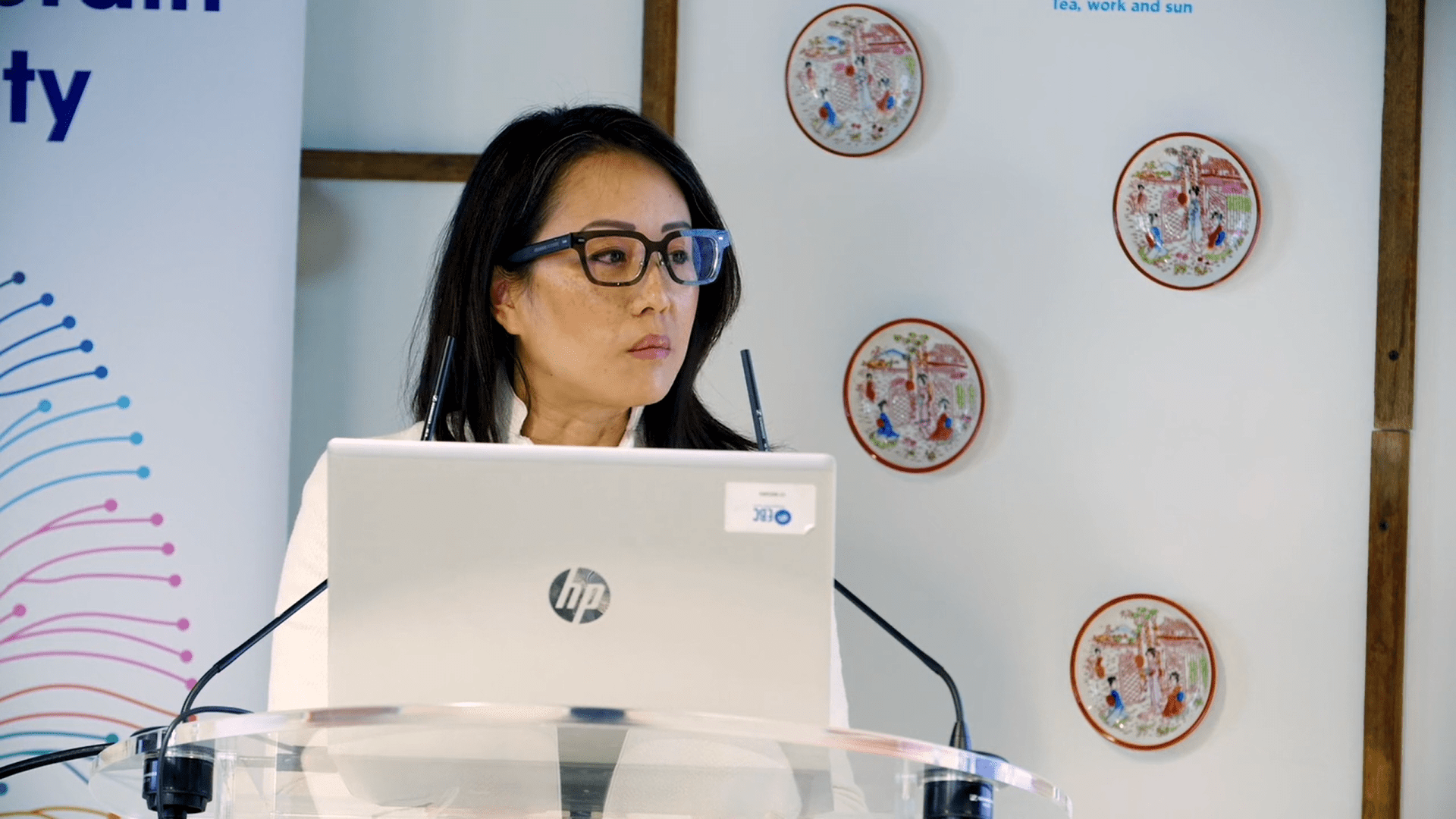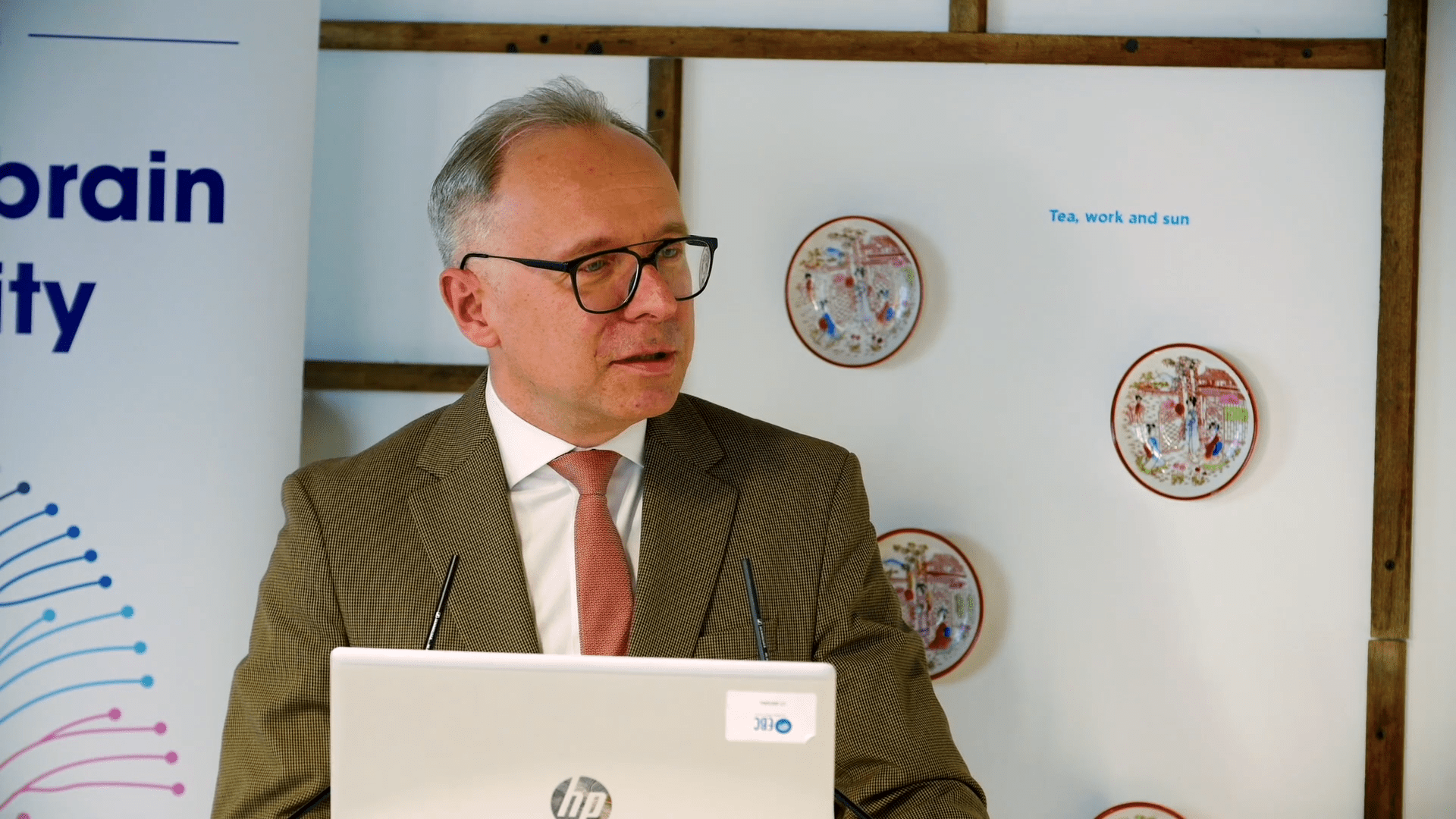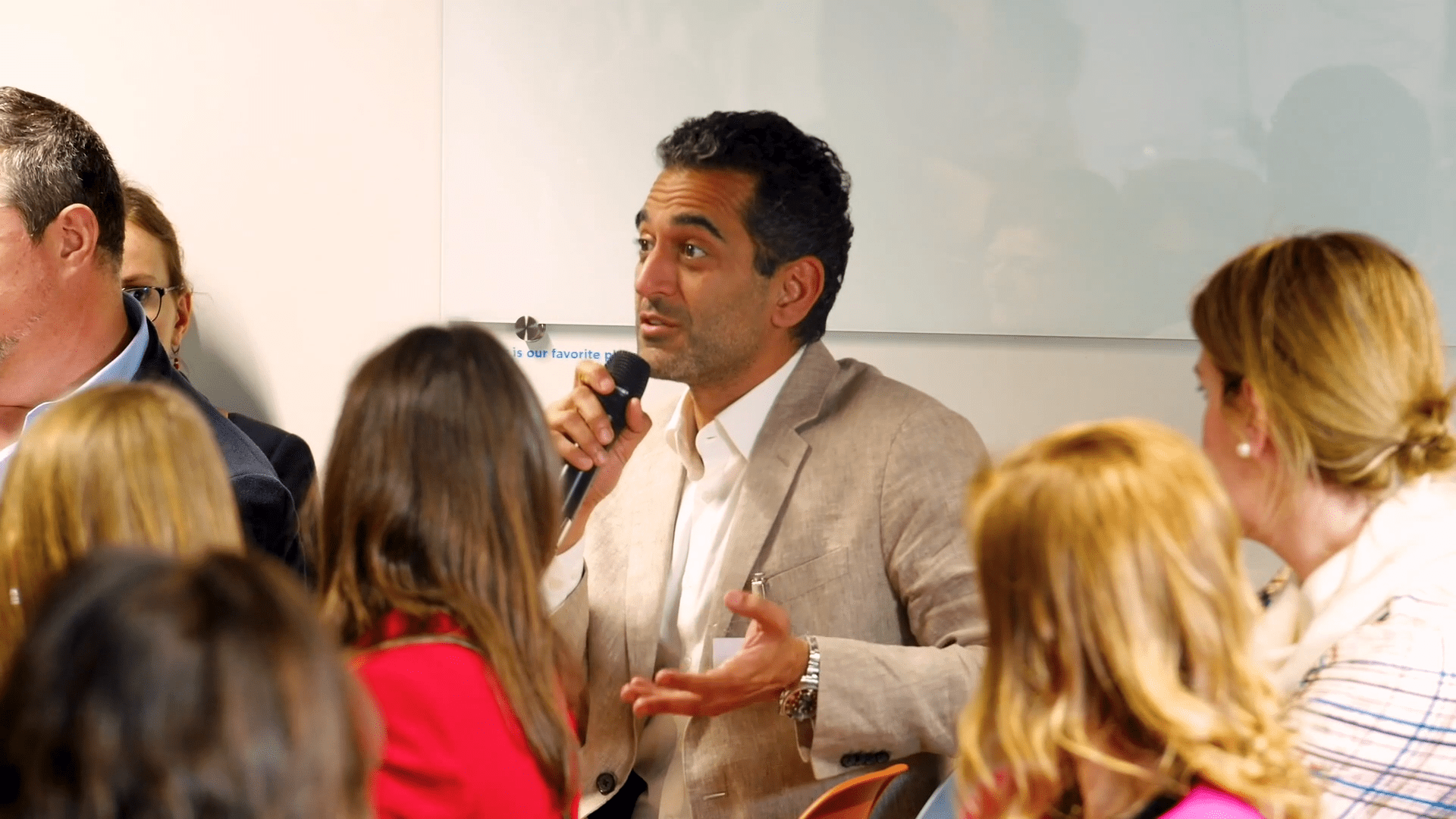On 16 March 2023, the European Brain Council (EBC) held its annual Brain Awareness Week event, this time with a full-day programme focused around Global Partnerships in Brain Research, showcasing ongoing work to enable dialogue and foster further collaboration within the community. The event was a perfect opportunity for participants to learn from their peers located all over the world through panel discussions, presentations and networking opportunities throughout the day.
Enhancing global collaboration in the domain of research and innovation is key for effectively addressing today’s societal challenges and improving the health and well-being of citizens. This is particularly true for brain disorders, including both neurological and mental conditions, which are widespread and highly disabling diseases that are often difficult to treat. It is crucial to explore how global research collaboration can support brain research in a meaningful way, to the benefit of people living with brain conditions across the globe.
It is clear that plenty of high-caliber brain research is underway across continents and the fostering of concrete global partnerships and alliances could only work to further strengthen the work and avoid duplication. Sharing knowledge and learning from peers, working in collaboration rather than silos and strengthening alignment across diverse public and private entities to structure and track investments benefits international research.
This event — organised by EBC in collaboration with the Federation of European Neuroscience Societies (FENS) and the International Brain Research Organization (IBRO) and with support from Roche and Boehringer Ingelheim — brought together key stakeholders representing Europe, North and South America, Africa, Asia and Australia, to reflect on the global burden of brain disease, enhancing brain health and how to approach the challenges together through knowledge and data sharing, capacity building, funding and policy: key areas to forge a path towards stronger international research alliances and, perhaps, a grander, global approach to brain health and research.
Moderated by Lisa Burke, the day kicked off with a welcome address from Prof. Juan Lerma, Vice President of EBC, and a welcome video from Prof. Suzanne Dickson, President of EBC. The first session of the day focused around “Brain Health: the Burden of Brain Disorders and the way towards better brain health globally”, launching with a Keynote Address on Global Brain Health by Dr Tarun Dua, Head of the Brain Health Unit within the Department of Mental Health and Substance Use of the World Health Organisation (WHO). Dr Dua spoke on the WHO’s overall goals as well as their more specific mandates around addressing brain health, with global action plans for ‘epilepsy and other neurological disorders’ and a ‘public health response to dementia’, and the paths forward towards more integrated and life-course approaches and brain health optimisation. Potential next steps around an integrated (intersectoral) response focused on getting brain health and neurology into government plans and budgeting processes at all levels; prioritizing activities for addressing promotion of brain health and neurological disorder prevention and treatment and care; engaging stakeholders including people with lived experience; tailoring the message for different audiences; and making the case for investment.
Prof. Irene Tracey, President of the Federation of European Neuroscience Societies (FENS) and Vice-Chancellor of the University of Oxford, spoke on Discovery Research and Brain Health, not only introducing the important work FENS does for the neuroscience community in fostering knowledge exchange, advancing discovery science, empowering community and investing in the future, but also examining the importance of discovery research in brain health in order to address the continued and growing needs (such as global population of 8 billion+ brains developing under changing conditions and increased risks to brain health) and the global efforts required (such as coordination of strategic actions, objectives and common positioning, funding support, cross disciplinary and stakeholder dialogue plus advocacy, as well as AI, ethics and data collection).
Following the first two presentations, members of the brain community were invited to reflect on the current situation of brain health from the perspective of neurology and psychiatry clinicians and patient representatives. “Definitely it is a huge cost, the burden is high, but what is extremely important: to treat mental disorders is cost saving. You’re going to save money, you just need to be brave enough to make this investment,” said Prof. Philip Gorwood, Past President of the European Psychiatric Association. “We can work together with different stakeholders to create a new, fruitful life for a person who had a great, fruitful life in the past. I met with so many experts and I realised through that through collaboration we can help people living with big mental, treatable conditions achieve better lives,” Peter Keri, President of GAMIAN-Europe, reflected in exchange. “If we were to spend more resources on neurological research and, more specifically, translational neurological research, we would be much further. The gap between the high prevalence and the ratio of spending on neurological disorders? The overall spending is less than 10% of the overall budget,” Prof Paul Boon, President of the European Academy of Neurology, speaks specifically on neurology in Europe, particularly from the view of a clinician. Following that, Dr Orla Galvin, Executive Director of the European Federation of Neurological Associations, providing a call to action for all stakeholders, highlighting the key opportunities for action now – including the IGAP and EU NCD Initiative – and reminded the room that mental health and neurology are so intertwined, especially for patients: “neurology and psychiatry are not necessarily two opposing, parallel universes; but, rather, housed within that context of brain health”.
“The most conspicuous aspect of this community is your success. As an editor, I have been the witness of the tremendous success in this field over the last 20 years. I think during this Brain Awareness Week people should know how truly remarkable it has been,” Dr Elena Becker-Barroso, Editor-in-Chief of the Lancet Neurology, provides an overall analysis of the huge strides that have been made in understanding and treating the brain over the last decades, including action in the areas of stroke, migraine and Alzheimer’s. “In a nutshell, neuroscience can save lives and help people live better lives. I hope our politicians realise this as quickly as possible.”
After a round of discussion and Q&A with our speakers from the brain community and a quick networking coffee break, the programme continued with the second Keynote Presentation on New and Emerging Trends in Brain Disorders by Prof. Theo Vos, Professor of Health Metrics Sciences at the Institute for Health Metrics and Evaluation (IHME) at the University of Washington in Seattle, USA. As reiterated multiple times by the first speakers, brain disorders are a significant driver of illness, spending, and death globally. The associated burden is expected to grow in the years to come, creating new challenges for health systems, employers, patients, and families. Prof. Vos discussed the growing magnitude of brain disorders and the role of data to help decision-makers allocate resources for funding and public health interventions, emphasising the need for a comprehensive view of brain health and approach for estimating this comprehensive brain health number. As the largest independent health data resource, the Institute for Health Metrics and Evaluation (IHME) at the University of Washington is leading the Brain Health Initiative with the help of like-minded organizations. Using IHME’s global database of scientific evidence and its network of health and policy experts, the initiative is working to: create urgency by disseminating compelling evidence on the prevalence of brain disorders and measure the true health and economic impact of brain disorders and the progress over time. As the last slide in his presentation stated, “better evidence drives policy action and can improve health outcomes for populations around the world”, reminding just how important it is for the advocacy work for the brain (and beyond) to have this latest, striking data at hand.
Following Prof. Vos’ presentation, Dr Tarun Dua rejoined him at the front of the room for a discussion around Mapping the Data: You Can’t Address What You Can’t Measure, taking a variety of questions around measuring the burden, DALYs, recognising ICD-11 definitions, the impact and ‘usefulness’ of the data measured on policy making, indicating data gaps, new technologies for advancing health and designing scenarios in health data measurement — to name a few.
After lunch, the first afternoon session, focused on Key Areas for Action at the Global Level, began. Dr Harris Eyre, representing the Brain Capital Alliance, OECD Neuroscience-inspired Policy Institute, The Baker Institute for Public Policy and the Meadows Mental Health Policy Institute, gave a presentation on Brain Capital: Moving Beyond the Burden, moving beyond the traditional focus on burden of disease to emphasize new and optimistic approaches to optimizing mental and neurological health arising from neuroscience, economics and policy. The world is increasingly relying on brain capital, where a premium is put on brain skills and brain health e.g., individual’s cognitive, emotional, and social brain resources. Investing in building brain capital is fundamental to meet modern societal challenges and to drive innovation. He profiled select examples across the lifespan and offered recommendations for moving this new agenda forward, while also speaking to how his own migraines have conferred great advantages to his career.
Dr Eyre’s presentation was followed by Prof. Anna Jansen, Head of the Advocacy and Collaboration Committee at the European Paediatric Neurology Society (EPNS), who provided a reflection on the importance of focusing on brain capital and our future generations, speaking with a spotlight on children living with a brain condition and/or neurodisability, a group that the WHO declared ‘was impacted the most’ during the COVID-19 pandemic. “We need to protect brain health and safeguard brain capital across the lifespan, since every event to the brain – congenital or acquired at birth in infancy, childhood or adolescence – will mark the lives of those affected, and their loved ones, for the rest of their lives”.
The session continued with a high-level Panel Discussion on Key Areas of Action to Strengthen Brain Research at the Global Level, which focused on four identified areas of priority for action: policy, funding, capacity building and data. Prof. Tracy Bale, President of the International Brain Research Organization, kicked off the discussion with a focus on capacity building: “diversity, equity and inclusion is valuable and I think we sometimes forget that point of the conversation. So talking about global brain research, that aspect of looking through the lens how another individual or another community has experienced something, I think is so important to understand that value of what it brings to the table. As scientists, what it brings to the table to be able to hear those different viewpoints, whether it’s cutting-edge science or just a really creative way of approaching a problem”. Moving to funding, Dr Tomás Ryan, Past Chair of the FENS-Kavli Network of Excellence, speaks on European funding mechanisms – highlighting excellent opportunities that exist, such as high-level, blue skies research funding through the ERC, however, making sure to contrast that to the immense funding researchers receive in the United States in comparison. “The European Union, that being its programmes such as Horizon Europe, spends around 500 million euro per year – in contrast, the National Institute of Health in the US spends an estimated 5-8 billion USD per year just on neuroscience research. That means we are nearly a factor of ten off on the investment we should be at to compete with the US and I think this is a major problem”. Dr Joachim Scholpp, Global Head Translational Medicine CNS & Emerging Areas at Boehringer Ingelheim begins his intervention highlighting the immense spending governments are having to make due to brain ill-health in Europe alone and offers a bold statement: “Coming from the pharmaceutical industry, I think that there is a lack of innovation. What I mean by that is not the innovation that has been made on the scientific side, there’s no question about that, when you look back over the last 10-15 years, what we know today compared to 15 years ago is incredible. What I mean is – success for me is: I develop a treatment and this is a treatment that makes a real difference for patients; and when I have that criteria and look back at the last 20 years, not a lot has happened”. Our moderator introduces the last panelist, Dr Andy Keller, President, Chief Executive Officer, and Linda Perryman Evans Presidential Chair of the Meadows Mental Health Policy Institute, highlighting that he joins us not from famous Bay Area or Boston ‘hubs of excellence’ in the United States but from Texas, where strides have been made in the brain space due to extensive funding. Dr Keller spoke on the work being done to foster the research ecosystem Texas-wide, ensuring all relevant stakeholders are involved, also up to the legislative level. Speaking on the policy work they do, he reminds, “be positive. If you go in there and tell the legislators that there is this ‘huge problem’ and ‘we don’t know much about the brain so we need to learn more’, you’re not going to inspire them to invest. You need to go in there and when they ask if you’re going to be helpful, you need to say yes.” The panel discussion finished with a series of questions and discussion with the audience and Andy Keller summarised the challenge for the next steps very well: “Now the question is, how do we do all that? How do we create an ecosystem where that can happen? I would argue that we can’t just have an ecosystem in Europe, in the Bay Area and Boston…we need to have an ecosystem that really is global.”
Immediately following the panel on key areas for action, the programme moved to taking this further with concrete examples of action globally, with guest speakers who traveled in from all over, representing the regions of Africa, Asia, Latin America and Australia. Prof. Mu-Ming Poo, Founding Director of the Institute of Neuroscience of the Chinese Academy of Sciences, started with an introduction to the work being done in China, particularly with the China Brain Project well underway, which followed the global wave of the last decade of governments beginning to recognise the importance of brain science for society. The comprehensive project, focused on basic neuroscience, was launched, following similar initiatives in the EU, US and Japan, in 2021. The project has a few areas of focus, including circuit-based brain functioning, study of brain diseases including diagnosis and intervention – which includes working with society and patient cohorts for data gathering, brain-machine interfaces, neuromodulation and nanotechnology tools, brain-inspired AI and big data. All of this with the intention to provide improved tools for diagnostics and intervention. Dr Mahmoud Bukar Maina, Independent Research Fellow, Serpell Sussex Neuroscience (UK), Team Leader, Biomedical Science Research and Training Centre, Yobe State University (Nigeria) and Outreach Coordinator, TReND in Africa Outreach Programme spoke next with a spotlight on Africa, beginning with a reminder that genetic studies suggest that we are all African deep down in our DNA, meaning that understanding African biology is critical for understanding our history as well as how we work in health and in disease. We goes on to say that, unfortunately, we hear about these flagship projects on the brain in China, in Europe, but no real news is coming from Africa, though work has been underway within the community to better identify and understand the opportunities and challenges for neuroscience on the continent. There are so many opportunities within Africa to contribute to global neuroscience, however, there are some barriers in the way, including infrastructure (i.e. research equipment) and funding, which really are stopping African neuroscience from taking full advantage of the opportunities out there: “it is really in the interest of the global neuroscience community to support research beyond borders”. Prof. Michael Berk, Alfred Deakin Professor and Director of IMPACT Faculty of Health, School of Medicine at Deakin University in Australia, speaks on how Australia is both succeeding and struggling in the space in different ways. Brain health – particularly with a focus on the mental part – is a public policy priority in Australia, which has allowed for the space to grow so significantly over the last decades. However, capacity generation, service provision and treatment development pipelines are struggling and Prof. Berk highlighted the need for international clinical trial programmes and the need to work globally to really approach all the challenges and find solutions for the barriers faced – like those in Africa or Australia – together. Last but certainly not least, the focus turned to Latin America, represented by Dr George Barreto, Neuroscientist, Department of Biological Sciences, University of Limerick and IBRO Latin America Regional Committee (LARC) Committee Member, who immediately raised the issue of neuroscience funding in the region, which is not distributed evenly across the region, as well as the lack of data transparency, which could immensely help in understanding the differences – even just of needed resources – across countries in the region. Brain drain, diversity and language barriers are other major issues hindering the space in Latin America, and this shows that better policies are needed to motivate the space. “We have a lot of brilliant neuroscientists in Latin America, however, we need to know better and improve how we can communicate the science we do there.”
The final session of the day turned to the future and using examples of initiatives underway that could lend ideas for concrete next steps: Looking towards consolidated action for brain research at the global level. Frédéric Destrebecq, Executive Director of the European Brain Council, stepped in for Prof. Monica Di Luca to present the Shared European Brain Research Agenda: calling for a Brain Health EU Action Plan, which introduced the work achieved within the recently-ended European Brain Research Area (EBRA) project and the agenda it produced to guide future European brain research and pave the way to a European Brain Health Partnership.
Dr Jennie Z. Young, Executive Director of the Canadian Brain Research Strategy, spoke next, taking us across the pond to Canada, to introduce the work ongoing to build and support the strategy. Canada is a world leader in neuroscience and mental health research, and it distinguishes itself in the way of approach to brain research: collaborative (scientific culture of coordination and cooperation), transdisciplinary (working jointly with stakeholders across disciplinary boundaries) and open (embracing Open Science principles to make scientific knowledge).
Speaking global, Paweł Świeboda, CEO of EBRAINS, tackled the idea of a global partnerships plan and moving Towards consolidated action for brain research at the global level, highlighting the need for agenda-setting (and the consolidation of regional agendas), prioritisation of international research collaboration, optimizing tools of support for research, strengthening collaboration among Research Infrastructures and working to make data a global public good for research purposes and, potentially, the eventual step towards a Global Health Data Space.
Prof. Juan Lerma, Vice President of the European Brain Council, brought the day to a close, highlighting the significance of the discussions held throughout the programme (both in the official programme and during the breaks) and committing to further developing the concrete next steps and seeing the identified key actions through.



